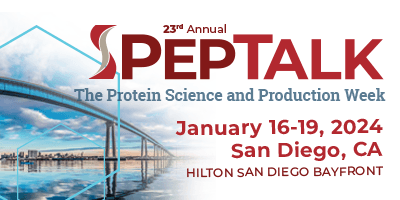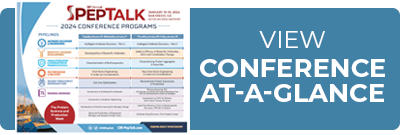講演者
Filter by:
Yasmina Abdiche, PhD, Vice President, Exploratory Research, OmniAb Inc.

Yasmina is an internationally recognized and innovative scientific leader in the field of antibody discovery and biosensors with twenty years of experience in protein engineering and biopharma. To date, she has authored over 45 peer-reviewed publications, had 25 patents granted in the therapeutic antibody space including a market-approved drug (Ajovy), presented over 50 times as an invited speaker globally, and has been involved in numerous industry-wide collaborations and scientific advisory groups. After a twelve-year career at Pfizer where she held positions of increasing responsibility from Principal Scientist to Research Fellow, more recently, Yasmina has held senior management roles at biotechnology companies and contract research organizations including Carterra (CSO), ImmunoPrecise Antibodies (CSO), ALX Oncology (Vice President Protein Science), Revelar (CSO and Co-Founder), and FairJourney Biologics (CTO). During her time as CSO at Carterra, she co-founded its antibody screening biosensor platform (the LSA) which has helped transform label-free interaction analysis in early-stage drug discovery. Yasmina has a Master's degree in Chemistry and a PhD in Biological Chemistry from Oxford University and did post-doctoral studies in biophysical interaction analysis at the University of Utah.
Yasmina Abdiche, PhD, Vice President, Exploratory Research, Antibody Discovery, OmniAb

Yasmina Abdiche, PhD is the Vice President of Exploratory Research at OmniAb. Dr. Abdiche has more than 19 years of experience in protein engineering and biopharma industry experience focused on the application of analytical biosensor technologies and label-free interaction analysis in early-stage drug discovery. Dr. Abdiche has authored more than 45 peer-reviewed publications and has had 25 patents granted in the therapeutic antibody space.
Sharee Adams-Hall, Senior Scientist, Pharmaceuticals, Pfizer Inc.

Ms. Sharee Adams-Hall earned her BS in Biological Sciences, with a Chemistry focus from the University of Michigan. She is a Senior Research Scientist in Analytical R&D in Biotherapeutics Pharmaceutical Sciences at Pfizer. She is a seasoned pharmaceutical research and development scientist with extensive experience in biochemical research, biotherapeutic analytics and characterization, lab automation and data analysis. Sharee’s current research work focuses on evaluating a method for determining multiple critical quality attributes for Viral Vectors using Light Scattering. Recently, Sharee’s work in developing and implementing an analytical assay measuring a Critical Quality Attribute using light scattering technology enabled the release of the COVID-19 vaccine. With nearly 20 years of experience in analytical science, Sharee is passionate about bringing novel biotherapeutics to patients, applying innovative technology to enrich Pfizer’s analytical toolbox and inspiring the next generation of scientists and researchers.
Chidozie Victor Agu, PhD, Manager, Bioassay Development, INanoBio, Inc.

Dr. Chidozie (Victor) Agu, a member of INanoBio SPOC Proteomics since 2016, holds the position of Bioassay Development Manager. He oversees the technical aspects of SPOC assays and leads our business development efforts. With his expertise in recombinant protein expression, bioengineering, high-throughput bioassay development, biomarker discovery, and translational research, Victor has made significant contributions to SPOC protein array platform. This platform combines cell-free protein expression from nanowells with capture purification on sensor surfaces using covalent binding chemistry. Currently, Victor is focused on optimizing our surface plasmon resonance SPOC assays for serum screening in various healthcare applications. He obtained his PhD in Metabolic Engineering from The Ohio State University.
Vincent A. Alessi, Lead, Product, AI, Deep Origin
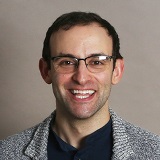
I believe that great products create joy for their users, and really enjoy building them. My focus is creating and commercializing effective technology-driven solutions that solve technical and market engagement problems. Sometimes i do this as a contributor, sometimes as the CEO. Currently I work with Deep Origin, where we are building tools that help scientists solve disease, streamline computational analysis, and simulate biology.
Richard Altman, MS, Field Application Scientist, Life Science Solutions, Thermo Fisher Scientific

Rich Altman has 30 years of experience in protein expression and production. In early 2019, he joined Thermo Fisher Scientific as a Field Application Scientist. Previously, he worked for several pharmaceutical companies, including Amgen, Alexion, Bayer, and Upjohn, on the cloning, expression, purification and characterization of recombinant proteins. This work supported both small-molecule high-throughput screening and protein therapeutic efforts. He received his MS degree from the University of Pittsburgh School of Medicine in the Department of Molecular Biology and Biochemistry.
Emma Altman, Senior Research Associate, Protein Sciences, Kite Pharma

Emma is currently a senior research associate at Kite Pharma, where she is a member of a team focused on the design, production, and characterization of critical protein reagents to support CAR T cell discovery and drug development efforts. She has a wide-ranging background in academic and industry settings, working on characterizing metal-containing enzymes, understanding viral evolution through a bacteriophage model system, and supporting protein reagent development at 10X Genomics. She also recently earned an master's degree in anthropology with research focusing on intersection of historical archaeology and science.
Zhiqiang An, PhD, Professor, Robert A. Welch Distinguished University Chair in Chemistry; Director, Texas Therapeutics Institute; Director, CPRIT Core for Antibody Drug Discovery; Vice President, Drug Discovery, University of Texas Health Science Center at Houston

Dr. Zhiqiang An is Professor of Molecular Medicine, the Robert A. Welch Distinguished University Chair in Chemistry, Director of the Texas Therapeutics Institute, and Vice President of Drug Discovery at the University of Texas Health Science Center at Houston. His laboratory focuses on antibody drug resistance mechanisms, biomarkers for therapeutic antibodies, and antibody drug discovery targeting human diseases. During the last five years, more than 12 novel antibody drug leads discovered in his laboratory were licensed to eight biotechnology companies, and six (6) have advanced to clinical trials for diseases ranging from acute myeloid leukemia (IO-202), breast cancer bone metastasis (ALMB-0168), solid tumor (IO-108), spinal cord injury (ALMB-0166), COVID-19 (IGM6268), and solid tumor (PRTH-101). Previously, he served as Chief Scientific Officer at Epitomics, Inc. and was Director of Biologics Research at Merck Research Laboratories. He has authored over 200 journal articles including more than 30 papers in Nature, Science, and Cell journal series; and two books including the award-winning “Therapeutic Monoclonal Antibodies: from Bench to Clinic.” He is an elected fellow of Society for Industrial Microbiology and Biotechnology (SIMB), the American Academy of Microbiology (ASM), American Association for the Advancement of Science (AAAS), and the National Academy of Inventors (NAI). Dr. An received his PhD from the University of Kentucky and his postdoctoral training at the University of Wisconsin-Madison.
Frank An, PhD, Senior Director, Antibody Therapeutics, Institute for Therapeutic Innovation, Biocytogen Boston Corp.

Dr. W. Frank An, Senior Director of antibody therapeutics. Key responsibilities include overseeing Biocytogen’s internal antibody discovery programs, including portfolio strategies, target selection, project implementation and management. Previous work experience includes Bicycle Therapeutics, Broad Institute of MIT and Harvard, and Millennium Pharmaceuticals (now Takeda).
Brett Averso, CTO, EVQLV, Inc.

Brett Averso, the CTO and co-founder of EVQLV, is a seasoned professional in the computational design and engineering of monoclonal antibodies. As the main architect behind EVQLV’s platform, his contributions facilitated the computational prediction of 7 de novo binding antibodies shortly after the company's inception. With a focus on reinforcement learning applied to generative evolutionary fitness, Brett spearheads the technology team and oversees the development of the EVQLV platform. His skill set encompasses machine learning, antibody engineering, scalable cloud computing, immunoinformatics, and agile development. Brett transitioned from a data analytics role in the asset management industry to become a leading digital biotech innovator. He holds an M.S. in Data Science from Columbia University School of Engineering.
Chris Bahl, PhD, CSO and Co-Founder, AI Proteins

Christopher D. Bahl, MS, PhD is a protein designer, biochemist, structural biologist and entrepreneur. Chris pioneered the ability to computationally design miniproteins de novo as a postdoctoral fellow with David Baker at the Institute for Protein Design in Seattle. In 2017, Chris joined the Institute for Protein Innovation in Boston as one of the founding faculty members, with co-appointments at Boston Children's Hospital and Harvard Medical School. In 2021, Chris and members of his laboratory left academia together to found AI Proteins, Inc., where Chris currently serves as the President and Chief Scientific Officer. AI Proteins is leveraging the power of miniproteins to rapidly create novel therapeutics de novo, a game-changing approach with the potential to transform the pharmaceutical industry.
Aditya Bardia, MD, Director, Breast Cancer Research, Harvard Medical School

Dr. Aditya Bardia, a board-certified medical oncologist, is an Attending Physician at Massachusetts General Hospital (MGH), and an Associate Professor, Harvard Medical School, Boston. As the Director of Breast Cancer Research Program at MGH, Dr. Bardia is interested in advancing research to improve the outcomes with breast cancer. Dr. Bardia has led the clinical development of antibody drug conjugate (ADC), sacituzumab govitecan, the first ADC approved for patients with metastatic triple negative breast cancer. Dr. Bardia has received several research awards including outstanding award for research excellence at Mayo Clinic, Young Investigator Award from ASCO, and Douglas Family Foundation prize for excellence in oncology research at MGH. Dr. Bardia is the editor of precision medicine clinic section of The Oncologist, co-leader of the Molecular and Precision (MAP) tumor board at MGH, and editorial board member of ASCO molecular oncology tumor board.
Michael B. Battles, PhD, Senior Scientist II, Adimab, LLC

I am an experienced protein engineer and structural biologist specializing in discovery and optimization of therapeutic candidates isolated from an in vitro platform. I am currently a Senior Scientist II at Adimab, LLC. in Lebanon, NH.Prior to returning to Adimab, I was a PhD student in the laboratory of Dr. Jason S. McLellan at the Geisel School of Medicine at Dartmouth, the focus of my thesis research was on small-molecule and antibody-mediated inhibition of the Respiratory Syncytial Virus and Human Metapneumovirus fusion glycoproteins through biochemical characterization and crystallographic studies. Prior to returning to Dartmouth to obtain my Ph.D. I spent ~10 years in the Biotech industry working for GlycoFi (RA, 2004-2005), Merrimack Pharmaceuticals (RAII, 2006-2008), and Adimab LLC (Scientist I, 2008-2013). During this time, my focus was on protein engineering; specifically, antibody discovery and optimization of therapeutic candidates.
Jacquelyn Blake-Hedges, PhD, Scientist, Protein Biochemistry, Sutro Biopharma

I obtained my bachelor’s degree in chemistry from The College of William and Mary where I studied plasmon-enhanced fluorescence of dyes coated on silica-coated silver nanoparticles with the aim of improving electron transfer in dye-sensitized solar cells. I then moved to California where I pursued my PhD in Chemistry at the University of California, Berkeley, under the guidance of Professor Jay Keasling, where I characterized and engineered polyketide synthases and related enzymes. Immediately after obtaining my PhD, I moved to Sutro Biopharma in early 2020 where I currently work on the strain engineering team within the Protein Biochemistry group.
Bartek Blus, PhD, Associate Director, Gene Therapy Research, BioMarin Pharmaceutical, Inc.

Bartlomiej J. Blus is an Associate Director at BioMarin Pharmaceuticals, where he develops gene therapy and protein therapeutics. Working at the interface of drug discovery and process development, he has led multiple efforts to elucidate the mechanism-of-action and quality attributes of drug molecules. Prior to joining BioMarin, Bartlomiej worked as a project leader under Gunter Blobel-the 1999 Nobel Prize Laureate in Physiology and Medicine-at the Rockefeller University, where he co-discovered an allosteric mechanism regulating a core structure of the nuclear pore complex. Bartlomiej holds a PhD degree in Biophysics from the University of Virginia and a MS degree in Biotechnology from the Lodz University of Technology. Biophysicist, structural biologist, and bioengineer by training, Bartlomiej has nearly two decades of experience in unraveling structure-function relationship of biomolecules and implementing innovative technologies to streamline biomedical research in academia and industry.
Jonathan Bones, PhD, Principal Investigator, Characterisation and Comparability Laboratory, National Institute for Bioprocessing Research and Training (NIBRT), Ireland
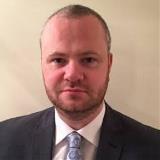
Jonathan received his PhD in Analytical Chemistry from Dublin City University in 2007. Jonathan then moved to NIBRT - The National Institute for Bioprocessing Research and Training, working under the mentorship of Prof. Pauline M. Rudd within her GlycoScience Laboratory. In 2010, Jonathan was appointed the John Hatsopoulos Research Scholar within the Barnett Institute of Chemical and Biological Analysis at Northeastern University, Boston, working under the mentorship of Prof. Barry L. Karger. Jonathan returned to NIBRT in 2012 and is the Principal Investigator of the NIBRT Characterization and Comparability Laboratory and an Associate Professor in the School of Chemical and Bioprocess Engineering at University College Dublin.
Juan Jose Bonfiglio, PhD, Science and People Lead, Mass Spectrometry, Roche, Germany

Jose is a Science and People Lead in the Mass Spectrometry department of Large Molecule Research at Roche Pharma Research and Early Development (pRED). He leads large molecule drug discovery projects, from an initial concept to Phase I, and develops hands-on state of the art MS methods for characterization of therapeutic molecules. He holds a PhD and M.S. in Biology & Life Sciences from the University of Buenos Aires and has been working in Protein Biochemistry and MS-based Proteomics for more than 15 years.
Andrew R.M. Bradbury, PhD, CSO, Specifica, Inc.

Andrew Bradbury is Chief Scientific Officer of Specifica. He trained in medicine at the universities of Oxford and London and received his PhD from the university of Cambridge at the MRC Laboratory of Molecular Biology under the guidance of Nobel Laureate, Cesar Milstein. He has worked in the fields of phage and yeast display, library generation, antibody engineering and Next Generation Sequencing for over thirty years. He was a Group Leader at Los Alamos National Laboratory before founding Specifica. Specifica's mission is to enable companies developing therapeutic antibodies with the world’s best antibody discovery platform.
Christoph Brandenbusch, PhD, Assistant Professor, Bioprocess Separations & Biologics Formulation Development, TU Dortmund University

Dr. Christoph Brandenbusch studied Chemical Engineering at the Department of Biochemical and Chemical Engineering at TU Dortmund, (Germany) 2003-2007. He finished his Ph.D. thesis in the field of downstream processing in biocatalysis in 2011. Since 2012 he works as a group leader and assistant professor at the Laboratory of Thermodynamics, Department of Biochemical and Chemical Engineering, TU Dortmund (Germany). His main research fields include: Novel strategies for protein purifications in pharmaceutical bio-processes as well as the development of liquid and lyophilized biopharmaceutical formulations. The methods used include analytical techniques as well as coarse-grained modeling approaches for predictive formulation screening.
Oleg Brodsky, Senior Principal Scientist, Structural Biology & Protein Sciences, Pfizer Inc.

Oleg Brodsky is a principal scientist in the Structural Biology and Protein Sciences group at Pfizer, which is part of the medicinal chemistry department and larger Pfizer worldwide research and development organization. With 20 years of experience in high-throughput structure-based drug design techniques, Oleg has supported early-stage drug discovery efforts in various therapeutic areas, with current focus primarily on oncology targets. In his current role, Oleg is responsible for protein expression, purification, and biophysical characterization of various recombinant protein targets in support of high throughput screening, biochemical assay development, and structural characterization efforts. Prior to joining Pfizer in 2004, Oleg spent several years at Syrrx, a small biotechnology company focused on developing and optimizing high-throughput, parallel protein expression and purification technologies and workflows. Oleg received his B.S. degree in Bioengineering from UC San Diego in 2001, and after joining Pfizer completed his M.B.A. from UC Irvine in 2008.
Mary Ann Brown, Executive Director, Conferences, Cambridge Healthtech Institute

Mary Ann Brown joined Cambridge Healthtech Institute (CHI) in 1992 as a Data Entry Associate. At that time CHI was a start-up company with many roles to fill and explore. She quickly realized that conference production which combined creativity and love of learning was the path for her. Mary Ann’s conference portfolio is varied from biologics to batteries where she is organizes over 15 scientific meetings a year along with being a Team Lead for several Key Events. Mary Ann graduated from Doane College in 1978 with degrees in Biology, Environmental Studies, and Geology.
- Intelligent Antibody Discovery - Part 2
- Intelligent Antibody Discovery - Part 1
- Safety & Efficacy of Bispecific Antibodies, ADCs and Combination Therapy
- Viral Vector Engineering & Scale-Up Considerations
- Developability of Bispecific Antibodies
- Characterizing Protein Aggregates & Impurities
- Recombinant Protein Expression & Production
- Cell Line Optimization
- Characterization of Biotherapeutics
Daniel Buckley, Director, CDO Downstream, Samsung Biologics

Daniel Buckley is a Lead Scientist in CDO Downstream at Samsung Biologics. He has an extensive background in the biotech industry, with more than 17 years of experience in new product introductions, purification scale-up, biotech facility design, biotech facility C&Q, process validation, commercial manufacturing, audit readiness, and regulatory inspections. Prior to joining Samsung Biologics, Daniel served as manager for two downstream purification facilities at Eli Lilly.
Bradley C. Bundy, PhD, Associate Professor, Faith & Learning Fellow, Chemical Engineering, Brigham Young University

Dr. Brad Bundy is a Professor of Chemical Engineering at Brigham Young University and the PI of the Bundy Biotechnology Lab which performs research in cell-free synthetic biology with four key objectives: 1) Engineer More Effective Biotheraputics through location-optimized PEGylation; 2) Enable Personalized Cancer Treatment with low-cost, at-home biosensors; 3) Develop On-Demand Magistral Production of Biologics with lyophilized cell-free protein systems; and 4) Build Better Biocatalysts through orientation-controlled covalent immobilization. Professor Bundy is the recipient of the NSF CAREER Award, DARPA Young Faculty Award, BYU Young Scholar Award, and Chemical Engineering Research Professorship.
Iain D.G. Campuzano, PhD FRSC, Scientific Director, Molecular Analytics, Amgen, Inc.

Iain Campuzano works in and manages a core analytical research group within Amgen Research. He has invented/co-invented six mass spectrometry related patents and published over 70 peer reviewed articles and book chapters. He has also presented and organised/chaired sessions at multiple international conferences such as ASMS, ASMS Sanibel, PEGS, Discovery on Target and PITTCON.
Lizz Carey, Senior Scientist, Vaccine Process Development, Merck

I started my career as a cell therapy research associate at Lonza in 2013 where I learned the fundamentals of mammalian cell culture. Soon I transitioned my career to working at NIAID's Vaccine Production Program (VPP) labs in Gaithersburg, Maryland. While at NIAID I supported a variety of CHO production processes (RSV, HIV, Zika, etc.) while learning upstream cell culture across scales from AMBR15 up to 50L SUBs. In 2019, I moved to Pennsylvania to work at Merck's West Point site in their Vaccine Process Development group. While at Merck I have been a bench-scale development lead for Dengue and COVID-19 vaccine candidates in addition to supporting other projects. In my spare time, I've been trying to learn more about native plant gardening after purchasing my first house last year.
Jennifer Giottonini Cayer, CBO, Pulmocide; Board of Directors, UCSD Moores Cancer Center and Biocom California

Ms. Cayer has over 25 years of biotech, pharmaceutical, and medical device experience. She co-founded several venture backed biotech companies that were acquired by global pharmaceutical companies or became publicly traded companies. She brings deep corporate and business development expertise having executed multiple alliances with pharmaceutical and biotech companies worth over $5B including mergers and acquisitions, drug licensing, technology licensing, drug discovery and development collaborations and company spinouts. She currently serves on several corporate and non-profit boards including Matrisys Biosciences, Devacell, UCSD Cancer Center, and Biocom. She recently joined Pulmocide as Chief Business Officer.
Bertie Chi, PhD, Senior Scientist, CMC Characterization & Analytical Development, Sanofi

Senior scientist from Sanofi. Specialised in biologics CMC development and protein biophysical characterization. Worked in pharma, small biotech as well as CDMOs across Europe, USA and China. Experienced with complex protein modalities such as multispecific antibodies, fusions and other advanced constructs. Previous posts include MedImmune (AstraZeneca), Wuxi Biologics and Kymab. Published multiple manuscripts in novel characterization methodologies, applications and biologics developability.
Henry C. Chiou, PhD, Senior Director General Manager, Biosciences, Thermo Fisher Scientific

Henry Chiou is Senior Director and General Manager for the Delivery and Protein Expression business within Biosciences at Thermo Fisher Scientific. He and his teams have developed products such as the Expi family of 293, CHO and Sf9-based expression systems, Lipofectamine 3000, and other Lipofectamine-family transfection reagents, production systems for cell and gene therapy viral vectors such as AAV MAX system. Henry has authored multiple publications on mammalian transient expression and frequently teaches courses and lectures on this subject. Prior to joining Thermo Fisher, Henry worked in small to mid-sized biotech companies on non-viral gene therapy. Henry received his doctorate from Harvard University in Molecular Pharmacology, following which he completed a postdoctoral fellowship in viral expression systems at the University of Pennsylvania.
Mark L. Chiu, PhD, CSO, Tavotek Biotherapeutics

Mark received his training from: BA Biophysics at UC Berkeley, PhD Biochemistry at University of Illinois Urbana-Champaign, and conducting postdoctoral work at ETH-Zurich and Biozentrum of University of Basel. His work experience has spanned from being an Organic Chemist at Microgenics developing chemical conjugation of enzymes; Chemistry Professor at Seton Hall University getting grants on prokaryotic membrane protein biochemistry; Research Investigator at Abbott Labs on Mammalian Membrane Protein Drug Discovery; Associate Director at Janssen Research and Development leading the Process Analytical Sciences Team responsible for clinical development of biotherapeutics, cell, and gene therapies. He is now CSO for Tavotek Biotherapeutics working on differentiated products for auto-immune and oncology diseases.
Hong Seok Choi, PhD, Principal Researcher, Research Ctr, Abion Inc

Hong Seok Choi received his PhD in Microbiology and Immunology at the University of Florida in 2014. During his PhD, he studied the oncogenesis, lytic reactivation, and latency of Kaposi’s sarcoma herpesvirus (KSHV). Hong Seok Choi did his post-doctoral trainings at NCI/NIH in the United States, responsible for the research of KSHV infection in hypoxic environment; and at DVP/FDA, responsible for the study of broad-spectrum influenza vaccine. Then, he joined Abion Inc. in 2020, to develop Interferon-beta mutein as broad-spectrum anti-viral therapeutics.
Danny K. Chou, PharmD, PhD, President, Biopharmaceutical Characterization and Formulation Development, Compassion BioSolution, LLC
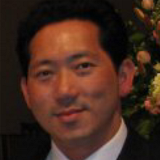
Dr. Danny K. Chou is a biopharmaceutical industry veteran with expertise in biopharmaceutical characterization, formulation development, and emerging technologies for protein aggregate/subvisible particle analysis. Currently, Dr. Chou is the Founder and President of Compassion BioSolution, a biopharmaceutical consultancy and Contract Development Service provider that serves clients throughout the world. Dr. Chou has over 20 years of experience in the pharmaceutical industry, both as a pharmacist and pharmaceutical scientist. Over the past 15 years he has led the development of formulations for numerous therapeutic modalities ranging from peptides, growth factors, mAbs, ADCs, and bispecific antibodies. Prior to starting Compassion BioSolution, Dr. Chou was a Senior Scientist and Group Leader at Gilead Sciences, where he successfully built up state-of-the-art analytical capabilities for the company and converted IV formulations of monoclonal antibodies to high concentration formulations that are more stable and can be easily administered by subcutaneous injection. Prior to this, Danny was employed by Genzyme and Amgen, where he played critical roles in drug product process development, manufacturing technical support, and pharmaceutical development. Since founding Compassion BioSolution, Danny has developed stable pharmaceutical dosage form for clients ranging from small start-up biopharmaceutical companies to Fortune 500 pharmaceutical companies. Danny received his PhD from the University of Colorado Center for Pharmaceutical Biotechnology under a NIH Fellowship and his PharmD from the University of Florida.
Joseph R Cohen, Principal Scientist, Attribute Sciences, Amgen Inc.

Dr. Joseph Cohen is currently a Process Development Principal Scientist at Amgen specializing in Immunology and Immunogenicity risk assessments for the evaluation of drug product CQAs for biological and safety impacts. Dr. Cohen conducted his PhD training in the areas of brain tumor development and therapy at UCLA and received his BS in biochemistry from the University of Tampa. Dr. Cohen completed his postdoctoral training in cancer immunotherapy and metastasis at the NCI at the NIH in Bethesda. He has also helped to advance cellular therapeutics for hematological and solid tumors at the John Wayne Cancer Institute, the University of Pennsylvania, and City of Hope.
Frank Comer, PhD, Director, Tumor Targeted Delivery, Early Oncology R&D, AstraZeneca

Frank is a Director in Early Oncology Discovery at AstraZeneca within the ADC Portfolio team. He received his PhD in Biochemistry from the University of Alabama, Birmingham, in 2000, where he studied under Professor Gerald Hart to elucidate the roles of intracellular O-GlcNAc glycosylation. He moved to the National Cancer Institute where he completed post-doctoral studies in Carole Parent’s laboratory, studying the role of the PI3 kinase pathway in spatial sensing and chemotaxis. Frank then joined Wellstat Therapeutics in 2007, where he led and contributed to several projects ranging from conjugate vaccines to therapeutic proteins, prior to joining AstraZeneca in 2012. Since joining AstraZeneca, he has held positions of increasing responsibility, with a research focus on antibody-drug conjugates and bispecific antibodies. He has served as a session organizer/chair in the “Advancing Bispecific Antibodies” track at PEGS since 2018.
Jake Connors, MS, CTO, R&D, Cirsium Biosciences

Dr. Gibbs has 23 years experience in the development and manufacturing of viral vector-based gene therapies for ocular and CNS disorders. He was previously head of Vector Development at Locanabio, founding director of the Salk Institute viral vector core facility and an assistant professor in Neurosciences at UCSD.
Gabriel A. Cook, PhD, Assistant Professor, Department of Chemistry, Oklahoma State University

I have held my current position in the Department of Chemistry at Oklahoma State University since 2014 after moving from the University of California San Diego where I worked as a Staff Scientist at the Center for NMR Spectroscopy and Imaging of Proteins. I graduated from Concordia University with a Bachelor’s degree as a Biology major and Chemistry minor. I then attended Kansas State University where I earned a PhD in Biochemistry in the lab of Dr. John Tomich. My research dissertation focused on the channel activity and structures of several channel-forming peptides derived from the human M2 glycine receptor in an effort to develop therapeutics for the treatment of channelopathies such as Cystic Fibrosis. I then moved to the University of California San Diego as a Post Doctoral Scholar in the lab of Dr. Stanley Opella where my studies focused on the structural and dynamic characterization of the membrane viroporin protein p7 from Hepatitis C Virus for the development of anti-HCV drugs. My current research interest is in determining the structure, dynamics, and interactions of membrane glycoproteins. Glycoproteins are a large class of proteins, taking part in nearly every biological process. They participate in the immune system as antibodies and as factors in the major histocompatibility complex interacting with T cells as part of a the adaptive immune response. They are also involved in white blood cell recognition, cell growth, differentiation, cell-cell interactions, and protein folding. Glycoproteins are also indicators for various cancers. A large number of important glycoproteins are integral membrane proteins. They can be found in the lipid bilayers that make up the plasma membrane and the membranes of organelles. Two of the proteins that my lab is specifically interested in are Sarcoglycan, involved in maintaining the integrity of muscle cells, and whose malfunction can lead to Muscular Dystrophy; and Syndecan, a protein used as a marker for several cancers including breast and prostate. Understanding the properties of these important macromolecules is an incredibly important component to the development of treatments of human disease involving glycoproteins.
Christopher R. Corbeil, PhD, Research Officer, Human Health Therapeutics, National Research Council Canada

Dr. Christopher Corbeil is a research officer at the National Research Council Canada (NRC) who specializes in the development and application of computational tools for biotherapeutic design and optimization. He is also an associate member of the McGill Biochemistry Department and teaches classes in Structure-Based Drug Design at McGill University. After receiving his PhD from McGill University, he joined the NRC as a Research Associate investigating the basics of protein-binding affinity. Following his time at the NRC he joined Chemical Computing Group as a research scientist developing tools for protein design, structure prediction, and binding affinity prediction. He then decided to leave private industry and rejoin NRC with a focus on antibody engineering. Dr. Corbeil has authored over 30 scientific articles and is the main developer of multiple software programs.
Christa Cortesio, PhD, Director, Protein Science, Protein Biochemistry & Analytics Core, Kite Pharma

Christa Cortesio, PhD, is a Director at Kite Pharma, a Gilead Company. She has more than 10 years of biochemistry-related industry experience and currently leads a team at Kite Pharma focused on the design, production, and characterization of critical protein reagents to support CAR T cell discovery and drug development efforts. Dr. Cortesio received her PhD in biomolecular chemistry with Anna Huttenlocher at the University of Wisconsin, Madison, where she studied mechanisms of cell migration and cancer cell invasion. Subsequently, she did postdoctoral work aimed at understanding cytoskeletal regulation during clathrin-mediated endocytosis with David Drubin at the University of California, Berkeley. Christa has authored 16 manuscripts published in several journals, including Journal of Cell Biology, Journal of Biological Chemistry, Journal of Cell Science, and Scientific Reports.
Graham Cotton, PhD, Head, Protein Therapeutics, Almac Discovery

Dr. Graham Cotton is Head of Protein Therapeutics at Almac Discovery, where he leads the company’s protein therapeutics programmes. He has been instrumental in developing Almac Discovery’s protein drug conjugates platform, combining protein engineering technologies with novel linker-payload systems to deliver next-generation monospecific and bispecific therapeutics. Graham obtained his PhD from the University of Edinburgh, working on synthetic protein HIV therapeutics, and continued these interdisciplinary studies as a postdoctoral researcher at Edinburgh University Medical School. He then spent several years in the laboratory of Professor Tom Muir, at Rockefeller University New York, as a Burroughs Wellcome research fellow, developing novel protein engineering technologies to study cancer signaling pathways. Prior to Almac Discovery, he held senior positions at several biotech companies with a focus on protein engineering and drug discovery. Graham is also an Honorary Lecturer at The Patrick G. Johnston Centre for Cancer Research at Queen’s University Belfast.
Steven M. Cramer, PhD, William Weightman Walker Professor, Isermann Department of Chemical and Biological Engineering, Rensselaer Polytechnic Institute

Professor Steven Cramer is an Institute Professor at Rensselaer Polytechnic Institute, Troy, New York. The Cramer lab’s research over the past 37 years has helped to improve the state of the art of downstream bioprocessing and its successful implementation for the biomanufacturing of biological products. Current research in the Cramer lab using a combination of biophysics, molecular dynamics simulations and chromatography with ligand protein libraries has provided insights into the design of novel multimodal chromatographic systems. Recent work on integrated biomanufacturing and expedited process development is having an impact on how bioprocess development is carried out in the industry. The Cramer lab is now actively involved in gene therapy downstream biomanufacturing projects, continuous mRNA processing, and several big data modeling efforts. Professor Cramer has won numerous awards including the ACS National Award in Separations Science and Technology, the ACS BIOT Division’s Michaels Award in the Recovery of Biological Products, the Gaden award from the ACS BIOT Division, and several awards from RPI including the Wiley Distinguished Faculty Award and the School of Engineering Outstanding Professor and Research Excellence Awards. Cramer has been elected a member of the National Academy of Engineering and U.T. Austin’s Academy of Distinguished Chemical Engineers. He is also an elected fellow of the American Association for the Advancement of Science, American Institute of Chemical Engineers, the American Chemical Society, and the American Institute for Medical and Biological Engineering. He has published extensively in the field with 230 publications, and the 57 Ph.D. graduates from the Cramer lab have had a significant impact with many of his former students now playing key leadership roles in the state of the art of industrial bioprocessing at most of the major biopharmaceutical and bioseparations companies worldwide as well as academia.
Roberto Crea, PhD, Founder & President, CEO & CSO, Protelica, Inc.

Prof. Roberto Crea is the founder and CEO of Protelica, Inc. A pioneer in biotechnology, Roberto Crea was one of the first five employees and the first Nucleic Acids Director at Genentech in 1977, where he established the DNA synthesis department and dramatically improved the use of synthetic DNA for gene synthesis. Dr. Crea is the sole inventor of the first two US Patents issued to Genentech in 1979 and 1982. His laboratory was instrumental to produce numerous bio-therapeutics, including Human Insulin, Human Growth Hormone, Interferons and numerous MAbs. His entrepreneurial career started in 1982, and includes the founding of several biotech start-ups, including Creative BioMolecules in 1982, Creagen in 1999, BioRen and CreAgri Inc. in 2000, Agroils in 2005, and Protelica in 2006. He was also Neurex’s CSO and SVP from 1994 to 1997 after he merged his company, Creagen, and before the acquisition of Neurex, Inc. by Elan Pharmaceuticals. In 2005, Dr. Crea sold BioRen, Inc. to Pfizer, retained the rights to use the DNA mutagenesis technology for any proteins outside the IgG class, and started Protelica, Inc. Dr. Crea holds a Ph.D. in Biochemistry from the University of Pavia, Italy and the title of Professor in Molecular Genetics from University of Messina (IT). Dr. Crea has authored over 45 US Patents and received numerous scientific awards. In addition to being its founder, Dr. Crea is President and CEO of Protelica, responsible for the overall implementation of the Company’s business and scientific affairs, including drug development activity and commercialization of Protelica’s products.
Emma Dave, PhD, Principal Scientist, UCB Pharma

Emma Dave is a principal scientist at UCB, having joined the company in 2005. Her interests lie in Research and Development of antibody therapeutic medicines and she is an integral contributor to the development of novel antibody therapeutic formats. She specialises in molecular biology, antibody expression, protein engineering, and bio-fermentation. She is also a seasoned PhD supervisor and currently involved in project management. Emma Dave has both published in peer-reviewed scientific journals and is a co-inventor on several UCB patents. Prior to joining UCB, spent 10 years in academia, specialising in areas of genetics and pathogenesis of infectious diseases. Emma earned her PhD from the University of Sheffield.
Darcy Davidson, PhD, Structural and Computational Biologist, Genentech
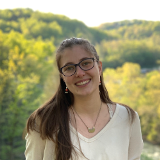
Darcy S. Davidson is a structural and computational biologist at Genentech. With a Ph.D. in Biochemistry from Virginia Tech, she explored how mutations and post-translational modifications impacted protein dynamics. Since joining Genentech, Darcy works to combine MD simulations and machine learning techniques to drug design. Beyond her research, Darcy is a passionate outdoor enthusiast and loves to spend time hiking and climbing.
Brandon DeKosky, PhD, Phillip and Susan Ragon Career Development Professor of Chemical Engineering, MIT Core Member, The Ragon Institute of MGH, MIT, and Harvard University

Dr. Brandon DeKosky is an Assistant Professor in the Department of Chemical Engineering at MIT and a Core Member of the Ragon Institute of MGH, Harvard, and MIT. Research efforts at the DeKosky lab have developed a suite of high-throughput single-cell platforms for comprehensive analyses of adaptive immunity. These efforts are advancing new approaches in biologic drug discovery, and for the comprehensive analyses of genetic and functional diversity in adaptive immune cells. The group seeks to reveal the quantitative principles that govern effective adaptive immunity and provide molecular design strategies for vaccines and biologics to combat global infectious agents including HIV-1, malaria, and SARS-CoV-2. The DeKosky lab is also investigating quantitative principles of immune regulation and establishing new approaches for targeted and personalized cancer therapies. Dr. DeKosky has been awarded several honors for his research program. His PhD research was supported by a Hertz Foundation Graduate Fellowship, an NSF Graduate Fellowship, and a Donald. D. Harrington Graduate Fellowship. In 2016, DeKosky was awarded a K99 Pathway to Independence Award and an NIH Early Independence Award and began a joint faculty appointment at the University of Kansas Departments of Chemical Engineering and Pharmaceutical Chemistry. He has also received the Department of Defense Career Development Award, the Biomedical Engineering Society Rising Star Award, and the AIChE Young Faculty Futures award. In 2021, Dr. DeKosky began as an Assistant Professor in a joint appointment at MIT Chemical Engineering and The Ragon Institute.
Peter C. Dedon, PhD, Professor, Biological Engineering, Massachusetts Institute of Technology
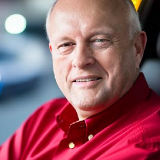
Pete Dedon is the Singapore Professor in the Department of Biological Engineering at MIT and the Lead Principal Investigator in the Singapore-MIT Alliance for Research and Technology Antimicrobial Drug Resistance IRG. With a research program that applies chemical approaches to nucleic acid biology, his group has developed a variety of analytical and informatic platforms for basic and translational research in epigenetics, epitranscriptomics, and genetic toxicology in infectious disease and cancer. One platform coordinates new sequencing technologies, comparative genomics, and mass spectrometry to discover novel epigenetic marks, such as phosphorothioate, hypoxanthine, and 7-deazaguanine modifications in bacterial and bacteriophage genomes in the human microbiome. In the realm of the epitranscriptome-the dozens of modified ribonucleosides in all forms of RNA-his team has developed and applied systems-level analytics to discover a mechanism of translational regulation of gene expression in bacteria, parasites, mammalian cells, and humans. This response mechanism coordinates stress-specific reprogramming of 40-50 different tRNA modifications with alternative genetic information consisting of biased used of synonymous codons in families of stress response genes. The net result is selective translation of codon-based gene families essential for survival or phenotypic change. Pete and colleagues are leveraging these discoveries to develop new enzymatic tools for biotechnology, new methods for industrial microbiology and protein production, and novel antimicrobial agents and biological therapeutics.
Iskandar Dib, Principal Scientist Process Development & Analytics, VALIDOGEN GmbH

Iskandar received his education at Graz University of Technology and the Research Center Applied Biocatalysis. After obtaining his PhD he joined the team of VALIDOGEN where he is heading the DSP and analytics department. His areas of expertise include bioprocess development applying DoE tools for process understanding. Furthermore, he has a key role in business development, discussing and designing projects in close collaboration with clients to best meet their development needs.
Jonathan Diep, PhD, Principal Scientist, Cell Line Development, Amgen, Inc.

Jonathan joined Amgen’s Cell Line Development team in 2018 and currently leads a small subteam focused on optimizing the production of biotherapeutics through host cell engineering. Prior to Amgen, he completed a PhD in Microbiology and Immunology at Stanford University and an internship in the Cancer Immunology department at Genentech.
Rakesh Dixit, PhD, President & CEO, Bionavigen

Rakesh Dixit is an accomplished executive, inventor, and scientist with over 35 years of success with top biotechnology and pharmaceutical companies, including Merck, Johnson & Johnson, and Medimmune - AstraZeneca. Currently, he is President and CSO of Regio Biosciences and Bionavigen, LLC. He is a Board Member of Regio Biosciences and a key member of multiple scientific advisory boards. Rakesh is also a chief adviser and consultant for more than 20 companies worldwide. His biopharmaceutical peers selected Rakesh as one of the 100 Most Inspiring People in the Pharmaceutical Industry by PharmaVOICE in 2015. Rakesh received the Most Prestigious Award of Long-Standing Contribution to ADCs by World ADC (Hanson-Wade), 2020. From 2006 to 2019, Rakesh was a Global Vice President of the Biologics R&D at Medimmune - AstraZeneca. Rakesh has unique expertise in developing biologics (e.g., monoclonal antibodies, bispecific biologics, antibody-drug conjugates, fusion proteins, peptides, gene and cell therapies, etc.) and small-molecule biopharmaceuticals. His areas of expertise include discovery, early and late preclinical development, safety assessment, DMPK, and translational sciences. Dr. Dixit conducted extensive graduate and post-graduate training in Pharmacology/Toxicology-Biochemistry with both Indian and USA Institutions (e.g., Case Western Reserve University, Medical College of Ohio, University of Nebraska) and is a Diplomate and Board Certified in Toxicology from the American Board of Toxicology, Inc. since 1992.
Patrick Doonan, PhD, Director of Antibody Engineering, XtalPi, Inc.

Dr. Patrick Doonan is a director of antibody engineering at XtalPi, Inc. He holds a Ph.D. in Biochemistry from Temple University and has been in the antibody discovery field for over 10 years representing UPenn, Pfizer, GSK, and Janssen. His work has generated several high impact publications and patents from engineering of bispecifics and ADCs across the fields of immunology, oncology and neuroscience. His current work focuses on utilizing AI to engineer highly developable antibodies that can move quickly to the clinic.
Zorica Dragic, PhD, Director, Cell Line Screening and Development, Novartis Pharma AG

Zorica leads Cell Line Screening and Development Unit at Novartis NIBR Biologics Center, responsible for development, engineering and characterization of various cell lines for research discovery purposes, and biologics manufacturing cell lines from early development and pre-clinical, up to commercial. During 17 years at Novartis, Zorica assumed different roles at the R&D interface - within early technical development and research as line function and project management. leading CMC teams, and cell line development unit.
Penelope M. Drake, PhD, Head R&D, Bioconjugates, Catalent Pharma Solutions
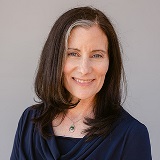
Penelope Drake is the Head of R&D Bioconjugates at the Emeryville, CA site of Catalent Pharma Solutions. This site is the home of the SMARTag ADC platform technology and was formerly Redwood Bioscience (acquired by Catalent in 2014). Dr. Drake joined the Redwood Bioscience team in 2011. Prior to her work with Redwood/Catalent, she earned her PhD from UCSF (Biochemistry/Immunology), did her postdoctoral studies at UC Berkeley with Nobel laureate Carolyn Bertozzi, and worked at UCSF with a mass spectrometry team studying cancer biomarkers.
Marija Dramicanin, PhD, Head, Protein Production Facility, Walter & Eliza Hall Institute of Medical Research

Marija Dramicanin holds a Master’s degree in Biology from the University of Belgrade in Serbia and a PhD in Structural Biology from the Spanish National Cancer Research Centre. After her PhD in Spain, Marija spent 6 years as a Postdoctoral researcher working at National Drug Discovery Centre (NDDC) at Walter and Eliza Hall Institute for Medical Research in Melbourne, Australia. In 2021, Marija was promoted to Head of WEHI’s Protein Production Facility (WPPF). Since its establishment, WPPF has delivered over 100 projects supporting and accelerating research initiatives at the institute, including small molecule drug and therapeutic antibody discovery. Marija has experience in structural biology techniques (including EM, NMR, and X-ray crystallography), protein characterization (including SPR, DSF, SEC-MALS), assay development, miniaturization, and high-throughput screening.
John Dresios, PhD, Executive Director, Biological Innovations Center; Leidos Technical Fellow & Solutions Architect, Applied Science Division, Leidos Innovations Center, Leidos, Inc.
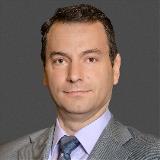
Dr. Dresios has 20 years of experience in the fields of protein synthesis and regulation of gene expression. As the Executive Director, Biological Innovations Center at Leidos (formerly SAIC), he has conceptualized, captured and directed internally- and US government-funded programs for the development of advanced diagnostic and therapeutic technologies at the intersection of biology, chemistry and engineering. His accomplishments have been recognized with various awards and his elevation to the rank of Technical Fellow. At Leidos, his team developed a cell free protein synthesis platform for end-to-end production of protein biologics within 24 hrs. As a Skaggs Postdoctoral Fellow at the Scripps Research Institute, he pioneered research that unraveled fundamental mechanisms of protein synthesis and control of gene expression. As an NIH Postdoctoral Fellow at the University of Chicago, he made discoveries in the fields of RNA and protein structure and interactions as well as prokaryotic and eukaryotic ribosome function and dynamics.
Friederike Eilts, PhD, Chair of Bioseparation Engineering, Mechanical Engineering, Technical University of Munich

Friederike is currently a research fellow in the Berensmeier group for Bioseparation Engineering at the Technical University Munich. Her primary focus is on developing new purification strategies for various antibodies. During her PhD studies, Friederike worked in the Wolff group at THM in Giessen. Her research centered around the physicochemical characterization and downstream processing of different viruses using steric exclusion chromatography. Notably, she placed special emphasis on the Orf virus, a novel viral vector currently undergoing Phase II clinical trials as a potential SARS-CoV-2 vaccine. International research stays at UBC (2015, Canada), UNAL (2016, Colombia), and RPI (2022, USA) complemented her studies of Biological and Chemical Engineering at the Technical University Braunschweig. Combining her diverse research experiences, Friederike's primary research focus revolves around the downstream processing of biological macromolecules and nanoparticles, particularly those derived from cell culture production.
Elizabeth England, PhD, Associate Director, Biologics Engineering, AstraZeneca

Liz England is currently an Associate Director in the Assay Hub of the Biologics Engineering department of AstraZeneca, Cambridge. Liz has responsibility for a team of scientists who develop and implement biochemical and cell-based assays for the isolation, optimization and characterization of candidate therapeutic biologic drugs.
Julia Fakhiri, PhD, Scientist, Gene Therapy Bioanalytics, Roche Diagnostics GmbH

Julia Fakhiri earned her PhD in Biology from the University of Heidelberg (Germany), where she delved into diverse gene therapy aspects, ranging from parvovirus capsid engineering to in vivo applications of AAV-CRISPR/Cas9. During her postdoctoral training at the Department of Infectious Diseases, University Hospital Heidelberg, she collaborated with industry partners on in vivo screening of AAV libraries. Following that, Dr. Fakhiri pursued another postdoctoral stint at Roche Pharma Research and Early Development (pRED) in Penzberg, Germany, focusing on developing processes for producing recombinant viral vectors based on AAV. Currently, she works as a Scientist in Roche's Bioanalytics and Biomarker department, where she specializes in developing assays for quantification and detection of AAV in vivo.
Andrew Feilden, PhD, Director, Analytical Sciences, CMC, Bicycle Therapeutics plc

Dr. Andrew Feilden joined Bicycle Therapeutics as CMC Director of Analytical Science in October 2022, where he is responsible for regulatory testing. He is an analytical chemist by training having over 25 years' experience in the field of trace analysis. He has a degree and DPhil from the university of York, is a Fellow of the Royal Society of Chemistry, and was a Scientific Advisor to IPAC-RS and ex-co-chair of ELSIE.
Elisa Fontana, MD, PhD, Oncologist and Medical Director, Sarah Cannon Research Institute UK

Dr Elisa Fontana, MD, PhD is the Hospital Medical Director of the Sarah Cannon Research Institute in London, UK (part of HCA International and ESMO Designated Centre of Oncology and Palliative Care). She is Principal Investigator for over 20 first-in-humans to late phase clinical trials and oversees a portfolio of more than 70 active clinical trials and translational studies. She graduated from the University of Parma, Italy in 2008 and completed her specialisation in Medical Oncology in 2014. She worked as sub-investigator in the gastrointestinal and drug development clinical trial units at The Royal Marsden Hospital, UK (2014-2019). She was awarded a PhD in colorectal cancer and biomarker assays development at the University of London, Institute of Cancer Research in 2019; she received the Chairman’s Prize for outstanding PhD. She successfully completed an entrepreneurial training programme for early career researchers aiming to translate research into clinical practice. She served as co-Chair of the Adolescent and Young Adult Gastrointestinal Cancer Task Force at the European Organisation for Research and Treatment of Cancer (EORTC) (2019-2020). She is the current secretary of the EORTC Gastrointestinal Tract cancer group (2021-2024 mandate). She has received multiple academic funding as lead applicant and over 10 ESMO and ASCO Merit Awards for conference presentations; she has published over 100 peer-reviewed articles, abstracts and book chapters.
Larry Forman, Founder & CEO, CHO Plus

Larry Forman is the Founder and CEO of CHO Plus. Larry started CHO Plus to address the high costs and capacity limitations associated with biomanufacturing by engineering cells to make them more productive for manufacturing therapeutic proteins and other biologics. Larry has a BA in Biology. He began his research career in academia, at the Albert Einstein College of medicine in New York City where he worked on colony-stimulating factors. After that, Larry was an early employee at Genentech where he spent 16 years, mainly involved with aspects of mammalian cell culture process development and process engineering. After Genentech, he worked directly or indirectly for numerous biopharma companies, mainly on process improvement. Throughout his many years in the industry, Larry observed that process improvements came mainly from better clone-screening methods, or better culture media. Larry believed that the next leap forward would come from creating cells that were more productive. He developed cell-engineering technologies that have led to unprecedented increases in productivity per cell for manufacturing antibodies for treating arthritis and cancer, viruses for gene therapy, and other biologics. These cell-engineering technologies were the basis for founding CHO Plus.
Nathan Frey, PhD, Senior Machine Learning Scientist, Prescient Design, a Genentech Company

Nathan is a Senior Machine Learning Scientist and Group Leader at Prescient Design, Genentech. At Prescient, his group develops and applies machine learning methods to molecular discovery and design. Previously, Nathan was a Postdoctoral Associate at MIT working with the Lincoln Lab Supercomputing and AI groups. He was a National Defense Science & Engineering Graduate Fellow at the University of Pennsylvania, where he obtained his PhD in Materials Science & Engineering. During graduate school, Nathan was an affiliate scientist with the Materials Project at Berkeley Lab.
Norbert Furtmann, PhD, Head, Computational & High-Throughput Protein Engineering, Large Molecule Research, Sanofi

Upon finishing his studies in Pharmaceutical Sciences, Dr. Furtmann pursued his interdisciplinary Ph.D. thesis in Computational Life Sciences and Pharmaceutical Chemistry at the University of Bonn, focusing on computer-aided design, synthesis, and biological evaluation of protease inhibitors. After starting his professional career at Merck KGaA as Principal Scientist, he joined Sanofi in 2016 as Lab Head for Bioinformatics within the Biologics Research department. Currently, Dr. Furtmann is heading the Data Science & Computational Design group to support the discovery of next-generation protein therapeutics.
Kavya Ganapathy, PhD, Postdoctoral Research Fellow, Genentech

I joined Genentech as a Postdoctoral Fellow in April 2022, in the Cell Culture and Bioprocess Operations (CCBO) department. I work with the Cell Line Development team to improve the expression and titer of Chinese Hamster Ovary (CHO) cells which are the most commonly used platform to produce protein-based therapeutic molecules in the industry. I graduated with my PhD in Biomedical Sciences from University of Central Florida (UCF) in 2021, where I focused on the regulatory role of specific noncoding RNAs in prostate cancer. I earned my Master’s degree in Cell and Molecular Biotechnology from University of Houston in 2015, and also worked for a year at a small startup testing ELISA-based assays with diagnostic applications in reproductive biology. All of these research experiences have strengthened my Molecular Biology and Cell Culture skills. Finally, I would like to describe myself as a person who doesn't give up very easily and "Never Says Never."
Francis Gaudreault, PhD, Research Officer, Human Health Therapeutics, National Research Council Canada

Francis obtained his PhD in Biochemistry from University of Sherbrooke in 2015, during which he developed a molecular docking program for docking small molecules to flexible protein or RNA targets. While doing his PhD studies, Francis co-founded a successful IT company for automating the management of scientific conferences. Francis joined the National Research Council (NRC) of Canada in 2016, where he has taken part in and led various efforts in the discovery and engineering of antibodies or other biologics. In such efforts are included the structure prediction of antibodies alone or in complex, the affinity assessment of antibody-antigen complexes, and the detection of antibody developability issues. Francis is leading the technical efforts in using artificial intelligence for antibody discovery.
Angela Gelli, PhD, Professor, Department of Pharmacology, School of Medicine, University of California, Davis
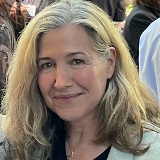
Dr. Angie Gelli, PhD, is a Professor in the Department of Pharmacology in the School of Medicine at the University of California at Davis, where she has been a faculty member since 2003. Dr. Gelli’s research interests in a neurotropic human pathogen led to a patent and a prestigious research award from The Hartwell Foundation that served as a springboard for her current work on pathologies related to blood-brain barrier (BBB) dysfunction. Dr. Gelli’s NIH-funded research program includes projects aimed at resolving molecular mechanisms of BBB breakdown in neuroinfections, aging and dementia, and upon acute exposure to organophosphates. Dr. Gelli’s work in protein production stems from her interests in developing pathogen-inspired technologies that promote delivery of molecules across the BBB. Born and raised in Canada, Dr. Gelli is an avid hockey fan and supports the Montreal Canadiens.
Nimish Gera, PhD, Vice President, Biologics, Mythic Therapeutics

Nimish Gera is the Vice President of Biologics at Mythic Therapeutics leading multiple projects to engineer and develop novel antibody and antibody-based drugs in oncology and immuno-oncology. Prior to Mythic, Nimish has over fifteen years of experience in antibody and protein engineering with five years leading bispecific antibody programs in several disease areas such as rare diseases, oncology, and immunology at Alexion Pharmaceuticals and Oncobiologics. Nimish received his PhD degree in Chemical and Biomolecular Engineering from North Carolina State University and a B.Tech degree in Chemical Engineering from Indian Institute of Technology, Guwahati.
Steffen H.J. Goletz, PhD, Full Professor, Deputy Head, Vice Director, Biotechnology & Biomedicine, Danish Technical University

PhD, Professor, Head of RG Biotherapeutic Glycoengineering & Immunology, DTU Bioengineering, Technical University of Denmark. Focus on novel bi- and multispecific antibody and cell-based therapeutics in immunooncology and infectious diseases. After early career in academic research, e.g. MDC in Berlin and MRC in Cambridge, SG founded, lead and matured Biotech companies successfully as CEO and CSO over 17 years before joining DTU as professor, Deputy Head of the Department and Head of Innovation & Entrepreneurship. Extensive experience in Strategic & Corporate Development, Investor Financing & Licensing, R&D, patenting and GMP manufacturing, incl. Early Research & Discovery, Preclinical Development, Process Development, Toxicology of Biopharmaceuticals, and Clinical Development and from FIM to larger PhIIb Studies. Heading R&D of biotherapeutic antibodies and proteins, complex antibody engineering, phage display, cellular and molecular glycoengineering, mammalian production cell system engineering, USP and DSP production process development. Heading GMP-production, preclinical and clinical development.
Peyton Greenside, PhD, Co-Founder & CSO, BigHat Biosciences

Peyton Greenside is the co-founder and CSO of BigHat Biosciences, an early-stage Bay Area startup developing an AI-first experimental platform to radically reduce the difficulty of designing antibodies and other therapeutic proteins. Before BigHat, Peyton was an inaugural Schmidt Science Fellow, a computational biologist at the Broad Institute, a scientific founder of Valis, and holds a PhD from Stanford University, an MPhil in Computational Biology from Cambridge University, and a BA in Applied Math from Harvard.
Matthew P. Greving, PhD, Vice President & Head, Machine Learning & Platform Technologies, iBio, Inc.

Matthew Greving serves as VP and Head of Machine Learning and Platform Technologies at iBio, a pre-clinical-stage antibody discovery company employing machine learning (ML) and synthetic biology to tackle challenging therapeutic targets and modalities. Previously, as co-founder and CTO of RubrYc Therapeutics, he led the development of an ML-driven antibody discovery platform featuring epitope-steering and mammalian-display. iBio acquired RubrYc's platform and pipeline, with advancements ongoing. Matthew earned his PhD in Biochemistry from Arizona State University and has over 15 years of experience with integrated computational-laboratory therapeutic and diagnostic discovery.
Rhys Grinter, PhD, Lab Head, Molecular Physiology of Microbial Pathogens Laboratory, Monash University

Dr. Rhys Grinter runs the Molecular Physiology of Microbial Pathogens (MP2) Lab in the Department of Microbiology at Monash University. He completed an honours degree in Biotechnology at Flinders University and received his PhD from the University of Glasgow. In 2015, he obtained a Sir Henry Wellcome Fellowship and returned from the UK to Australia to work on iron uptake by bacterial pathogens at Monash University. In 2021, he founded his lab and was awarded an NHMRC Investigator Grant to continue his work on iron piracy by bacterial pathogens. In addition to this work, he performs ARC-funded research into the structure and function of bacterial enzymes that oxidise atmospheric trace gases and discovering novel antibiotics to combat the antibiotic resistance crisis. The Grinter lab utilises current and emerging technologies to understand how microbes work. It harnesses this understanding to prevent disease and to develop enzymes and natural products as tools for biotechnology. It utilises diverse techniques across genomics, bioinformatics, molecular microbiology, biochemistry, and structural biology.
Adrian Grzybowski, PhD, Principal Scientist, Antibody Engineering, Triplebar Bio

Dr. Adrian Grzybowski is currently leading Triplebar's effort to develop a functional-screening-centric platform for antibody discovery. Previously, as a group leader in antibody engineering at Alamar Biosciences, Dr. Grzybowski contributed to the creation of the company’s core technologies: NULISA - zeptomole sensitivity detection of proteins in plasma, and ATTOBODY - an antibody discovery platform for routine discovery of picomolar binders. Dr. Grzybowski received his PhD from the University of Chicago, where he invented Snap-ChIP - a technology for in situ measurement of antibody specificity and capture efficiency of chromatin immunoprecipitation. He has also pioneered work on in silico antibody specificity correction, enabling abundance information recovery for specific targets in the assays using low-specificity antibodies. Prior to this, he participated in the efforts of the Recombinant Antibody Network in the laboratory of Dr. Anthony Kossiakoff, where he contributed to HTP antibody discovery using a semi-automated phage display platform.
Benjamin J. Hackel, PhD, Professor, Chemical Engineering & Materials Science, University of Minnesota

Ben Hackel is a Professor of Chemical Engineering and Materials Science at the University of Minnesota. He earned degrees in chemical engineering from the University of Wisconsin (B.S., advised by Eric Shusta) and MIT (PhD, advised by Dane Wittrup) and performed postdoctoral research in the radiology department at Stanford University (Sam Gambhir). Since its inception, the Hackel lab has applied protein engineering technologies to develop physiological molecular targeting agents for molecular diagnostics and targeted therapy, with a focus on oncology and infectious disease.
Caitlin Hanna, Senior Scientist, Chemistry, Waters Corporation
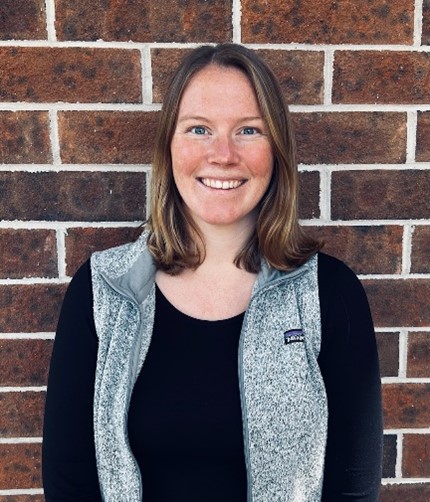
Caitlin is a Senior Scientist in the Biopharmaceutical Consumables and Lab Automation group at Waters. She received her PhD from the University of California, Irvine in 2019 and joined Waters in 2022. Caitlin is experienced in sample preparation and LC-MS for biopharmaceutical CQA analysis.
Takamitsu Hattori, PhD, Assistant Professor, Biochemistry and Molecular Pharmacology, NYU Grossman School of Medicine

Takamitsu Hattori, PhD, is a Research Assistant Professor in the Department of Biochemistry and Molecular Pharmacology at the NYU Grossman School of Medicine and is a member of the Laura and Isaac Perlmutter Cancer Center at NYU Langone Health. He received a PhD in Biomolecular Engineering from Tohoku University (Sendai, Japan) and completed postdoctoral training in protein engineering at The University of Chicago. He was a Research Assistant Professor at Tohoku University before joining the current institute. His research focuses on designing and engineering proteins with novel functions and applying such synthetic proteins to the development of biologics, affinity reagents, and research tools.
Chris Heger, PhD, Director, Applications Science, Analytical Solutions Division, Bio-Techne
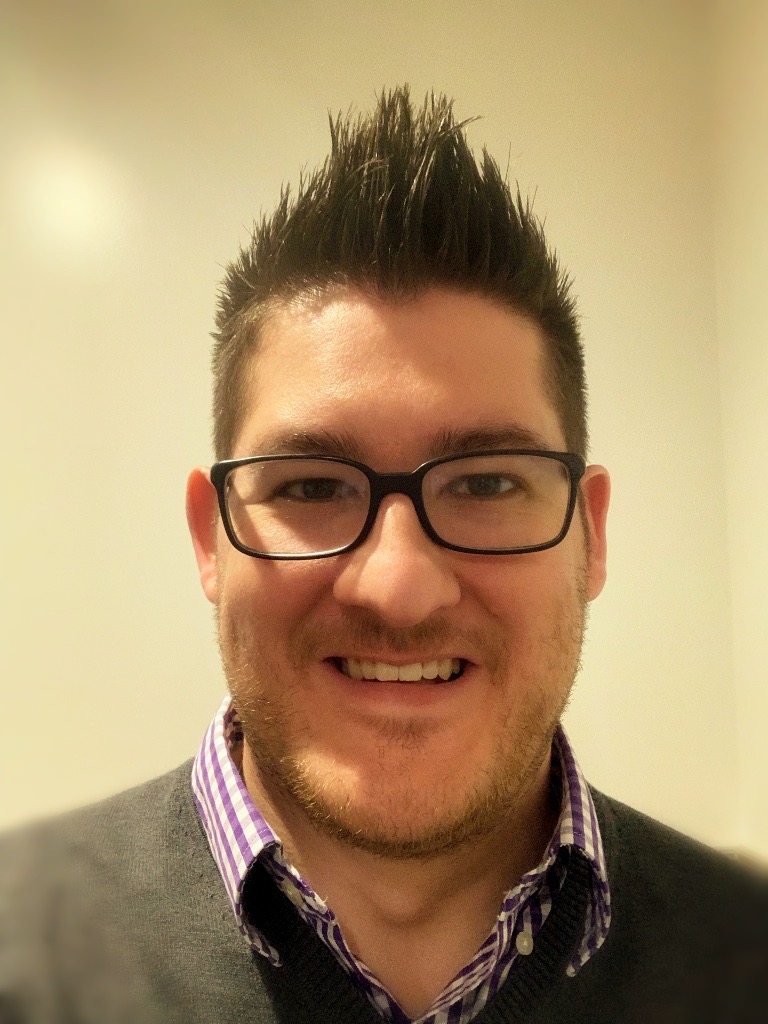
Dr. Chris Heger serves as the Director of Applications Science for Bio-Techne. He received his Ph.D. in Pharmacology from Cornell University and completed his post-doctoral training at the NCI. He joined Bio-Techne in 2012 and currently leads Applications Science group chartered with applications and content development, fostering collaborations, and providing custom analytical solutions. He’s a member of Bio-Techne’s Science and Technology Council and serves as technical expert for Bio-Techne Corporate Development.
Ronald Herbst, PhD, CSO, R&D, Biolojic Design Ltd.

Dr. Herbst is Chief Scientific Officer (CSO) at Biolojic Design, a biotech company that uses its unique AI platform to engineer epitope-specific and multi-specific antibodies with new functionality. Prior to joining Biolojic, Dr. Herbst was CSO at Pyxis Oncology where he led the company through its successful evolution from its initial focus on immunotherapies to expansion into next-generation ADCs. Prior to Pyxis, Dr. Herbst was Vice President and Head of Oncology Research at MedImmune, and was a member of the MedImmune Research Leadership Team. Before joining MedImmune, Dr. Herbst was Senior Principal Investigator in oncology at DNAX, a Schering Plough subsidiary. Dr. Herbst conducted his postdoctoral research at Stanford University. He obtained his PhD at the Ludwig-Maximilian University of Munich, with research conducted at the Max-Planck Institute of Biochemistry.
Peter Hsueh, PhD., Marketing Product Manager, ACROBiosystems
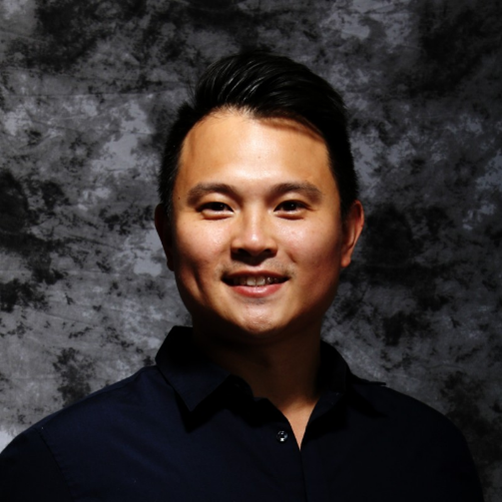
Peter Hsueh, Ph.D., is a dynamic Marketing Product Manager at ACROBiosystems, a leader in developing and manufacturing recombinant proteins and critical reagents/assays to support therapeutic development. Leveraging his extensive technical expertise in molecular biology and biomarker research, Peter aims in shaping impactful marketing strategies that resonate within the life science community. Formerly a Field Application Scientist, Peter brings a wealth of experience in customer technical support allowing him to understand and address the unique needs of customers. Driven by a passion for both science and marketing, Peter is committed to steering ACROBiosystems towards new horizons through targeted marketing initiatives.
Robert M. Hughes, PhD, Associate Professor, Chemistry, East Carolina University

Robert Hughes received a PhD in Bioorganic Chemistry from UNC-Chapel Hill in 2007 and performed post-doctoral studies at Duke University and UNC - Chapel Hill. In his current position at East Carolina University, he leads a group of graduate and undergraduate scholars with a primary emphasis on the development of optogenetic protein-based reagents for the control and monitoring of biochemical pathways. Ongoing projects include the development of light-activated biosensors for the detection of oxidative and energetic stress in cells; optogenetic reagents that initiate biochemical pathways ending in cell death; and library-based methods for the production of improved protein chimera via a linker optimization strategy. Other areas of interest include the creation of novel immobilized enzyme formulations with biotechnology applications and the development of protein biocatalysts for the asymmetric synthesis of pharmaceutical compounds.
Alissa Hummer, PhD Student, Charlotte Deane Lab, Oxford Protein Informatics Group, Department of Statistics, University of Oxford

I am a PhD student in the lab of Prof Charlotte Deane (Oxford Protein Informatics Group) at the University of Oxford, UK. My PhD research spans machine learning and protein engineering, with a particular focus on therapeutic antibody design. I am developing machine learning models to predict and optimise sequence- and structure-based properties of antibodies in pursuit of the ultimate aim to design better antibody therapeutics, at reduced timescales and costs.
Andrei Hutanu, PhD, Senior Scientist, Ten23 health

Andrei Hutanu attended the Technical University of Munich from 2012-2018 where he got his degree in Biochemistry. He then started his PhD at F. Hoffmann-La Roche Ltd. with research focus on enhancing capillary electrophoresis (CE) methods for biopharmaceuticals. During his PhD, Andrei has established CE methods for new modalities like mAb co-formulations and bispecific mAbs. In 2019, he switched his focus to method development for cell and gene therapy products with a special focus on recombinant adeno-associated viruses. Since 2023, he is part of the analytical development team of Ten23, a CDMO that aims to develop, manufacture, and test tomorrow’s medicines.
Alexander R. Ivanov, PhD, Associate Professor, Department of Chemistry & Chemical Biology, Northeastern University

I am an Associate Professor in the Department of Chemistry & Chemical Biology and a Faculty Fellow at the Barnett Institute of Chemical & Biological Analysis, as well as Faculty Director of Mass Spectrometry Facility at Northeastern University. My team and I develop novel separation- and mass spectrometry-based technologies to reach previously unachievable levels of sensitivity in qualitative and quantitative analysis used in clinical, academic, and industrial research. These advanced approaches are aimed to enable molecular profiling and structural characterization of proteins, protein complexes, and other biomolecules at ultra-high sensitivity. The ultimate goal of our research is to develop new diagnostic tools, enable new clinical and biological applications, and answer challenging biomedical questions related to the origin of disease and the function of the cell. Our current research focuses on studies of limited cell populations (down to single cells), post-translational modifications, proteoforms, protein interactions, and new modalities of biotherapeutics, as well as extracellular microvesicles for diagnostics, new therapies, and personalized medicine applications.
Bharat Jagannathan, PhD, Principal Scientist, Attribute Sciences, Amgen Inc.

Bharat Jagannathan is a Sr. Principal Scientist in the Attribute Sciences group at Amgen, and has led the advancement of multiple early-stage products from molecule assessment to clinical trials. He has a strong scientific background in protein folding, stability and protein-protein interactions. Bharat holds a doctoral degree from Pennsylvania State University and was a postdoctoral researcher at University of California, Berkeley prior to joining Amgen.
Donald L. Jarvis, PhD, Professor, Molecular Biology, University of Wyoming

Donald Jarvis earned a Ph.D. in virology in 1986 at Baylor College of Medicine and moved to Texas A&M University in 1987, where he started a new research program focused on protein biosynthesis and processing in the baculovirus-insect cell system. Don was a faculty member at Texas A&M from 1989 to 1997, then moved to the University of Wyoming, where he continues to address protein processing and viral contamination problems in an effort to improve baculovirus-insect cell technology. In 2011, Don started GlycoBac, LLC to fine-tune, commercialize, and apply new baculovirus-insect cell systems created in his academic lab. GlycoBac’s efforts have yielded virus-free insect cell lines that are being assessed as improved hosts for biologics manufacturing and used to detect adventitious viral contaminants to validate bioprocessing methods.
Li Jing, PhD, Principal Scientist, USP

Dr. Li Jing is a Principal Scientist in USP’s Global Biologics Department. Dr. Jing leads a team of liaisons working with the USP Expert Committees and multiple Expert Panels for proteins, peptides, and carbohydrates to develop standards that support biopharmaceutical quality assessment and development. Recently, Dr. Jing worked with USP MAM Expert Panel and developed general chapter <1060> Mass Spectrometry Based Multi-Attribute Method for Therapeutic Proteins
Pranav Joshi, PhD, Associate Director, Upstream Process Development, University of Pennsylvania

Pranav Joshi currently serves as an Associate Director, Upstream Process Development, for Gene Therapy Program at the University of Pennsylvania. In this position, Pranav oversees upstream process development and platform improvement activities for rAAV-based gene therapy vector production. Pranav graduated from McGill University, Montreal, Canada, in 2021, with a PhD in Bioengineering. In his doctoral work, Pranav developed upstream and downstream processes and process analytics for rAAV manufacturing employing insect cell- and mammalian cell-culture platforms in collaboration with National Research Council of Canada in Montreal. Pranav started his career in industry with Intas Pharmaceuticals Ltd., in India, as an upstream process development engineer for manufacturing of monoclonal antibody-based therapeutics. Collectively, Pranav has more than 8 years of process development experience for biotherapeutics manufacturing and has authored several research publications on rAAV manufacturing technologies.
Alois Jungbauer, PhD, Professor & Head, Biotechnology, Institute of Bioprocess Science and Engineering, University of Natural Resources and Life Sciences (BOKU)
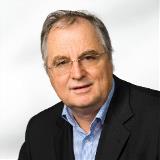
Professor Alois Jungbauer received his PhD in Food Technology and Biotechnology from the University of Natural Resources and Life Sciences Vienna, Austria 1986. He serves since then as a professor at the Department of Biotechnology. He teaches Protein Technology and Downstream Processing and Bioprocess Engineering. He also acts as area head and Deputy Director of Research in the Austrian Centre of Industrial Biotechnology. He is currently working in the field of bioengineering of proteins, plasmids and viruses with special focus on expression, downstream processing and characterization of large biomolecules. For more than 10 years he is working on continuous manufacturing of biopharmaceuticals. As a proliferate researcher he has more than 340 publications on recombinant protein production and bioseparation, 17 patents and 12 book contributions and recently a monograph entitled “Protein Chromatography , Process Development and Scale Up”. He is executive editor and co-founder of Biotechnology Journal, and member of editorial boards from numerous journals in the area of biochemical engineering. He acts also a the vice president of research of the European Society of Biochemical Engineering Science.
Vishal Kamat, PhD, Senior Director, Protein Sciences, Ampersand Biomedicines

Vishal (Vish) Kamat is an innovative and collaborative leader with 17 years of experience in the field of biotherapeutics and biophysical characterization of antibodies and proteins. He has supported the discovery and development of antibodies for 150+ targets which yielded 20 clinical drug candidates and 3 market-approved drugs - DUPIXENT, LIBTAYO, and EVKEEZA. He also has extensive experience in high throughput screening of antibodies using diverse platforms such as SPR, BLI, KinExA, Gyrolab, MSD and Luminex. His scientific excellence is evident by multiple peer-reviewed publications in high impact journals, patent approvals and IND reports. After a 12-year career at Regeneron Pharmaceuticals where he held positions of increasing responsibility from postdoctoral candidate to Sr. Staff Scientist, he worked as a Director of Antibody Characterization at Twist Biopharma and is currently working as a Senior Director of Protein Sciences at Ampersand Biomedicine. Vishal holds a PhD in Biomedical Engineering from Drexel University and BS in Electronics Engineering from University of Mumbai.
Gilad Kaplan, PhD, Associate Director, Biologics Engineering, AstraZeneca

My background is in using protein and antibody engineering to develop Biologic Therapeutics. During my PhD studies at Tel Aviv University, I studied the conformational changes in HIV gp120 using conformationally sensitive antibodies. I then moved on to design more stable and less immunogenic anti-cancer immunotoxins during my postdoctoral studies at the National Cancer Institute. After my postdoctoral fellowship I started working for AstraZeneca where I am currently an Associate Director and head of the Developability and Analytics group at the department of Biologics Engineering (BE). In this capacity I have contributed to multiple pipeline projects, including AstraZeneca’s anti-SARS-COV-2 antibody cocktail AZD7442 (EVUSHELD).
Alexandros Karyolaimos, PhD, Researcher, Department of Biochemistry & Biophysics, Stockholm University

Alexandros is a researcher working at the department of Biochemistry and Biophysics, Stockholm University. Since his Ph.D. and through-out his post-doc, Alexandros has focused on answering fundamental questions regarding protein quality control in the cell envelope of E. coli and how to use this information to enhance recombinant protein production. Part of his work is directed to identifying and solving the bottlenecks hampering protein production in E. coli and has resulted in the development of an easy-to-use and accessible platform to customize E. coli for protein production. Currently, the stage is being set to commercialize the platform.
Nandini Kashyap, Senior Director, Conferences and Social Media Strategy, Cambridge Healthtech Institute

Nandini is a seasoned professional who seamlessly transitioned from a successful career as a pharmaceutical scientist to becoming a conference and business networking expert, amassing over 16 years of invaluable experience within the biopharmaceutical industry and the partnering ecosystem. As the Senior Director of Conferences and Social Media Strategy at Cambridge Healthtech Institute, she and her team play a pivotal role in fostering connections among key stakeholders in the biotech, MedTech, and digital health sectors. She holds a bachelor's in Pharmacy and a master's in Pharmacy in Pharmaceutics and is a published author and speaker in diabetes and insulin delivery space. Beyond her professional endeavors, she is a fitness enthusiast who passionately advocates fitness and postpartum weight loss. She is an Indian American Pageant winner and enjoys dancing, modeling, and being the human spinner in response to endless requests of "Mommy, spin me!".
John K. Kawooya, PhD, Private Consultant of Robotics-Plate-Based-Ultra-HT Biologics Purification
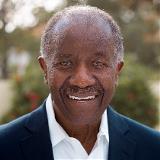
Director, Biologics Optimization, Discovery Research, Amgen, Inc.; PhD, University of Illinois at Urbana-Champaign; Postdoctoral at the University of Chicago and University of Arizona, Tucson; Visiting Scientist, University of Rio de Janeiro; over 20 years of industrial experience in column protein purification and high-throughput magnetic protein purification technologies.
Ronan Kelly, PhD, Director, Protein Expression & Purification, Eli Lilly & Co

Ronan M. Kelly received his PhD from the University of Groningen, the Netherlands, where he focused on protein engineering of carbohydrate-modifying enzymes. Shortly after, Ronan joined N.I.B.R.T, Dublin, where he explored CHO cell glycoengineering strategies to enhance the effector function of IgG1 mAbs. In his time at Lilly, Ronan has held many roles including a position in technical services in mAb manufacturing and cell line engineering in the development organization. More recently, Ronan has been leading a discovery team focused on the expression and purification of complex recombinant proteins from both mammalian and bacterial systems.
Daniel Keri, PhD, Research Scientist, Protein Engineering and Design, Gilead Sciences

I completed my PhD at the Swiss Federal Institute of Technology (EPFL) where I worked on developing computational protein design methods to alter G protein-coupled receptor signaling and subsequent experimental validation. I then joined Gilead Sciences as a research scientist to apply these computational techniques to improve and accelerate the biologics discovery process, as well as to design next-generation multi-specific therapeutics.
Dikran Khachadourian, Field Application Scientist, Halo Labs

Dikran Khachadourian is a Field Application Scientist at Halo Labs. Dikran completed his undergraduate studies at UC San Diego, obtaining a bachelor's degree in Biochemistry and Cell Biology. His interest in the biological sciences led him to pursue a master's degree in Biology. After spending time in academia as a graduate researcher and educator, Dikran joined the Halo Labs team to apply his background to the ongoing advancements in biotechnology.
Kei Kishimoto, PhD, CSO, Selecta Biosciences, Inc.

Dr. Kishimoto is the Chief Scientific Officer of Selecta Biosciences, a biotechnology company developing tolerogenic ImmTOR technology to mitigate unwanted immune responses. Prior to joining Selecta, Dr. Kishimoto was Vice President of Research at Momenta Pharmaceuticals where he led multidisciplinary teams in inflammation, oncology, and cardiovascular disease. Previously he was Senior Director of Inflammation Research at Millennium Pharmaceuticals, where he provided the scientific leadership for four programs in clinical development, and an Associate Director of Immunology at Boehringer Ingelheim. Dr. Kishimoto received his doctoral degree in Immunology from Harvard University and his post-doctoral training at Stanford University.
Harald Kolmar, PhD, Professor and Head, Institute for Organic Chemistry and Biochemistry, Technische Universitat Darmstadt

Harald Kolmar is full professor at the Technische Universitat Darmstadt, Germany where since 2005 he heads the Department of Applied Biochemistry. He holds a PhD and habilitation in biochemistry and molecular genetics from University of Tubingen and Gottingen. His current scientific interests mainly focus on protein engineering and design, nanobiotechnology, antibody engineering, chemical biology and development of tailor-made peptides and proteins for applications in diagnostics and therapy.
Niels Jonas Krausch, PhD, Postdoc, Bioprocess Engineering, Technische University Berlin

Niels Krausch is a Biotechnology expert, holding an M.Sc. from TU Berlin and a Ph.D. in bioprocess engineering and model predictive control (MPC). With research experience at ETH Zurich, Imperial College London, and University of Oxford during his Ph.D., he now serves as a Postdoc at TU Berlin's Kiwi-biolab, an international AI-driven future lab. His current focus is on optimizing sustainable biomaterials production, employing a blend of mechanistic and data-driven MPC techniques. He brings a distinctive perspective to the global discourse on efficient and eco-friendly bioprocessing.
Andrew C. Kruse, PhD, Professor of Biological Chemistry and Molecular Pharmacology, Harvard Medical School

Dr. Kruse is a professor at Harvard Medical School, where he leads a group focused on the structure and function of integral membrane receptors. Key research accomplishments include defining the structural basis for agonist action at the angiotensin II type 1 receptor and other G protein-coupled receptors (GPCRs), cloning the sigma-2 receptor, and determining the first structure of a tetraspanin protein and showing how it regulates B cell activation. The Kruse lab developed a single-domain antibody fragment discovery platform that has now been distributed to more than 400 academic labs and has been licensed to several pharmaceutical companies. Dr. Kruse is a co-founder of Tectonic Therapeutic, a biotechnology company, and the Institute for Protein Innovation, a non-profit research organization. He has received awards including an Amgen Young Investigator Award (2019), an Alfred P. Sloan Research Fellowship (2017), a Vallee Scholars Award (2016), and an NIH Director’s Early Independence Award (2015). He received B.S. degrees in Mathematics and Biochemistry from the University of Minnesota in 2009 and completed a Ph.D. in Structural Biology at Stanford University in 2014, where he trained with Dr. Brian Kobilka.
Brian Kuhlman, PhD, Professor, Biochemistry and Biophysics, University of North Carolina Chapel Hill

Brian Kuhlman, PhD, is a Professor in the Department of Biochemistry and Biophysics at the University of North Carolina at Chapel Hill. His laboratory develops and applies methods for computational protein design. Ongoing areas of interest include de novo protein design, protein interface design, protein switch design, and deep-learning methods for protein modeling. Dr. Kuhlman is a recipient of the AAAS Newcomb Cleveland prize, the Feynman Prize in Nanotechnology, and the ASBMB DeLano Award for Computational Biosciences.
Michael Kulke, PhD, Vice President, Nonclinical Development, Oncology & Cancer Research, Heidelberg Pharma AG

Dr. Michael Kulke acts as Vice President Non-Clinical Development at Heidelberg Pharma Research GmbH since 2017. Dr. Kulke can look back on 20 years’ experience in drug development in oncology, and more than 15 years’ experience in the development of ADCs until clinical stage. He graduated in Biology at the University of Mainz and received his PhD from the Physiology Department of Heidelberg University, Germany.
Senthil Kumar, PhD, GoSilico Sales Specialist-Chromatography, Cytiva
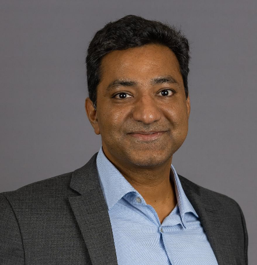
Senthil is a GoSilico Sales Specialist for GoSilico™ Chromatography Modeling Software at Cytiva. He has extensive experience in Downstream process development and manufacturing of mAbs, bi-specifics and viral vectors. He leverages his background in DSPD to address customer challenges in biopharmaceutical process development through mechanistic modelling. He did his Bachelors in Biochemistry, Master’s in molecular biology and PhD in Industrial Biotechnology from Anna University. Senthil is passionate about helping scientists to accelerate process development for an efficient, robust, and scalable process, thereby facilitate in bringing drugs to market faster.
Abraham M. Lenhoff, PhD, AP Colburn Professor, Chemical & Biomolecular Engineering, University of Delaware

Abraham Lenhoff is the Allan P. Colburn Professor of the Department of Chemical and Biomolecular Engineering at the University of Delaware, where he has been on the faculty since 1984 and was Chair from 2012-7. He earned a Bachelor's degree from the University of Cape Town and Master's and Ph.D. degrees from the University of Wisconsin, all in chemical engineering. His research is primarily on application of principles of thermodynamics, transport phenomena, biophysics and colloid science to protein separations and phase behavior, with an emphasis on chromatography.
Sabrina Leslie, PhD, Associate Professor, Physics and Astronomy Department, The University of British Columbia

Professor Sabrina Leslie studied honours physics and mathematics at the University of British Columbia twenty years ago before moving to UC Berkeley where she obtained her PhD in optical physics in 2008, followed by her Mary Fieser postdoctoral fellowship in biophysics at Harvard University 2009-2011. There she invented a tether-free, high-throughput single-molecule imaging technology called Convex Lens-induced Confinement (CLiC), which established her as a pioneer in single-molecule investigations. In 2012, she became an Assistant Professor at McGill University and founded her research group in the Physics Department. There she developed CLiC into a platform technology and used it for new single-molecule studies of nucleic acids, proteins, polymers, nanomaterials, biologics, and cells. In 2019 she was honored with the Young Investigator Award from the Biophysical Society of Canada, and in 2020 she was elected to the Royal Society of Canada (RSC) College of New Artists Scholars and Scientists. In 2021, she and her team re-located to the Michael Smith Labs at UBC where her Associate Professor appointment is joint with the Department of Physics and Astronomy and affiliated with the School of Biomedical Engineering, Genome Science and Applied Technology and Bioinformatics programs.
Nathan Lewis, PhD, Professor, Pediatrics and Bioengineering, University of California, San Diego (UCSD)
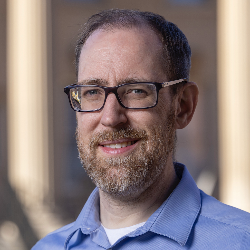
Dr. Lewis is a Professor of Pediatrics and Bioengineering at the University of California, San Diego. He received his BS in biochemistry at Brigham Young University, and his PhD at UC San Diego, where he focused on proteomics and developing novel approaches for analyzing biological big data using genome-scale systems biology modeling techniques. Dr. Lewis completed his postdoctoral training at the Wyss Institute at Harvard Medical School, where he worked on genome editing and the use of systems biology for the interpretation of genetic screens. Dr. Lewis' lab integrates all of his previous work by focusing heavily on the use of systems biology and genome editing techniques to map out and engineer the cell pathways controlling mammalian cell growth, protein synthesis, and protein glycosylation.
Christina Lingham, Executive Director, Conferences and Fellow, Cambridge Healthtech Institute

Christina has spent the last 25+ years creating more than 300 events hosted by CHI. She is the creator and driving force behind the PEGS Summit, now in its 18th year, and the Molecular Medicine Tri-conference, now in its 29th year, and has identified and developed emerging topics including bispecific antibodies, genomics, molecular diagnostics, phage display, point-of-care diagnostics, bioinformatics and many more. Christina emphasizes the importance of bringing together the academic and industrial sectors to create environments where innovation is fostered and commercial applications are advanced.
Randolph Lopez, PhD, CTO and Co-Founder, A-Alpha-Bio

Randolph Lopez is the CTO and Co-Founder of A-Alpha Bio, a start-up focused on the discovery and optimization of biologics therapeutics via massive protein-protein interaction datasets and machine learning. Prior to A-Alpha Bio, Randolph did his graduate work at the University of Washington where he pioneered research in synthetic biology, molecular computing, and DNA information storage.
Ray Low, PhD, Sr Dir & Head, Protein Sciences, Nutcracker Therapeutics Inc

Ray Low has extensive experience in the field of protein sciences, including areas for protein expression, purification, and analytics. He has worked at multiple major protein biologics biotech such as Shire, Amgen, and Denali. He is currently working at Nutcracker Therapeutics as the head of protein sciences with a focus on the development of an innovative therapeutic platform to enable advancement of mRNA-based treatments in the rare diseases and immune-oncology space.
Kyle Luttgeharm, PhD, Product Manager, Agilent
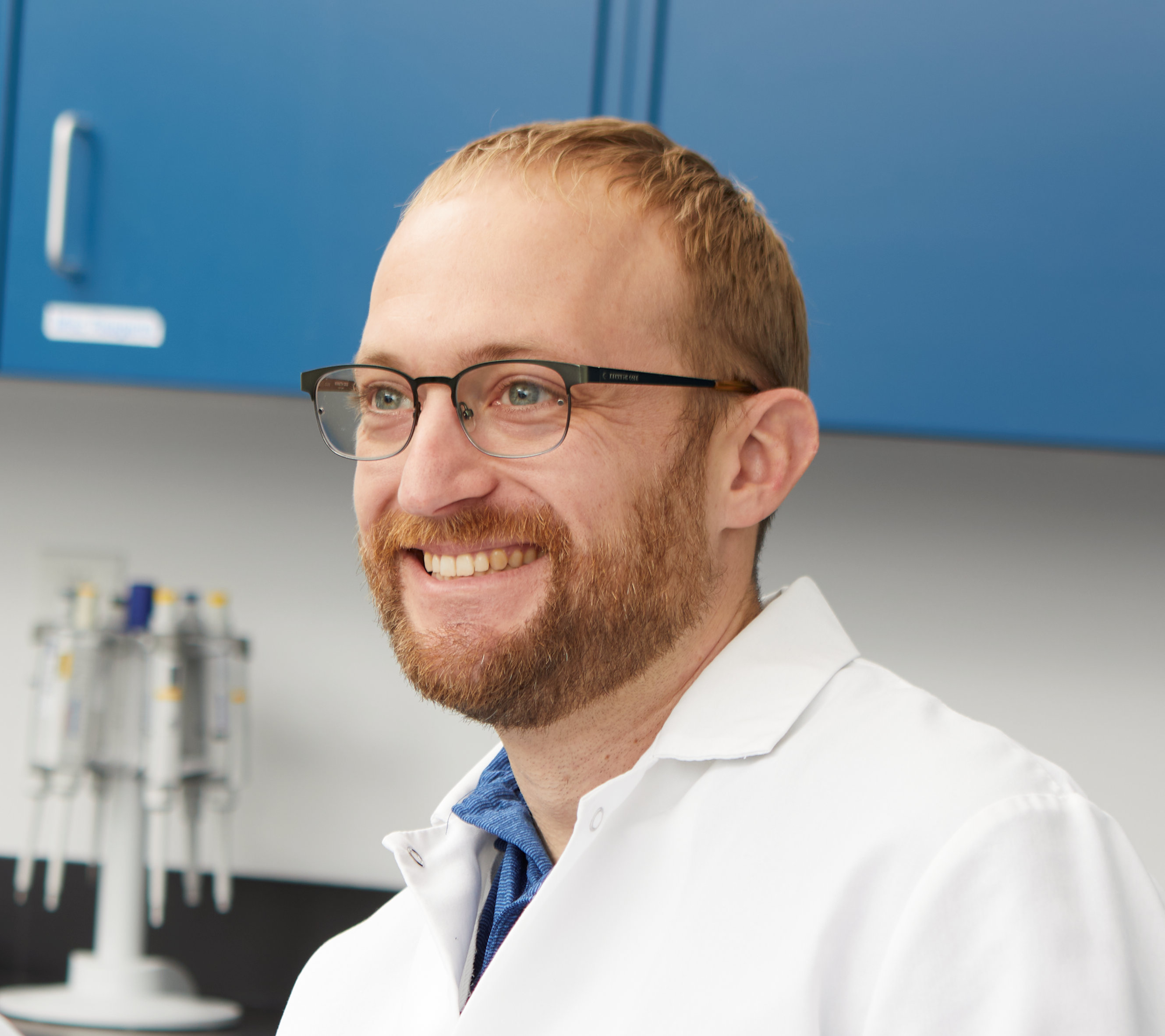
Dr. Kyle Luttgeharm is a Product Manager with Agilent Technologies. He holds undergraduate degrees in Biology and Biochemistry from Southwestern College in Winfield, Kansas, and a doctorate in Biochemistry from the University of Nebraska-Lincoln. Dr. Luttgeharm previously worked as an Application Scientist with Advanced Analytical Technologies, Inc. and an R&D Scientist with Agilent. He has extensive experience developing methodologies and assays for Agilent’s parallel capillary electrophoresis technology.
Yoan Machado, PhD, Scientist, Molecular Analytics, Amgen

Yoan Machado received his undergraduate degree in Biochemistry from the University of Havana, Cuba, in 2007. His research was focused on developing analytical methods for phosphoproteomics. He then joined the Centre for Molecular Immunology as a research scientist working in protein characterization by LC-MS. In 2013, Yoan entered the Immunity Cancer and Allergy international PhD program at the University of Salzburg, Austria. His research focused on understanding the cellular and molecular mechanisms underlying protein allergenicity. After completing his degree, Yoan joined as a postdoc in the Overall lab at the University of British Columbia. His research utilized N-terminomics and proteomics to study the regulation of proteolytic networks in health and disease including COVID-19. Yoan joined Amgen in 2021 where he is currently a scientist in the Molecular Analytics team at the Centre for research Acceleration by Digital Innovation. His research interests focus on high-throughput MS-based methods for the characterization of large protein panels.
James D. Marks, MD, PhD, Professor and Vice Chairman, Department of Anesthesia and Perioperative Care, University of California, San Francisco (UCSF); Chief of Performance Excellence, Zuckerberg San Francisco General Hospital and Trauma Center (ZSFG)

Dr. Marks is Professor and Vice-Chairman of the Department of Anesthesia and Perioperative Care at the University of California, San Francisco (UCSF) and Chief of Performance Excellence at Zuckerberg San Francisco General Hospital and Trauma Center (ZSFG). Dr. Marks received his medical degree from UCSF where he also completed residencies in Internal Medicine and Anesthesia and a fellowship in Critical Care Medicine. He received his Ph.D. in molecular biology from the Medical Research Council Laboratory of Molecular Biology in Cambridge, England. Dr. Marks is an internationally recognized pioneer in the field of antibody engineering, has had constant federal funding for 27 years and has authored more than 200 publications and 100 patents. In recognition of these scholarly achievements, he was elected to the National Academy of Medicine. As an entrepreneur, he has co-founded four biotechnology companies and currently serves on three biotechnology corporate boards.
Michael S. Marlow, PhD, Director Biologics CMC Research, Biotherapeutics Discovery, Boehringer Ingelheim Pharmaceuticals, Inc.

Trained as a protein structural biologist (Vanderbilt University) and biophysical chemist (University of Pennsylvania), I am currently applying many of the techniques, principles, and philosophies obtained from over seven years in the Early-Stage Development CMC arena (Regeneron) to Biotherapeutic Discovery Research processes at Boehringer Ingelheim. We are building our capabilities and platforms to push beyond accepted industry paradigms for characterization and developability assessments of research molecules, ultimately helping achieve Speed to Clinic.
Tyler Martin, Mechanistic Modeling Specialist, Cytiva
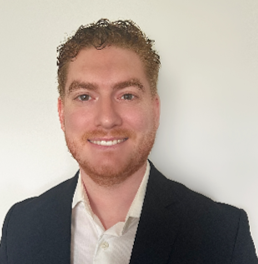
Tyler is a Mechanistic Modeling Specialist for GoSilico™ Chromatography Modeling Software at Cytiva. He utilizes a diverse background in Downstream Process Development of nucleic acids, recombinant proteins, and viral vectors operations to empower in silico chromatography modeling. He received his B.S and M.S. degrees in Materials Science and Engineering from the University of Florida. Tyler enjoys the innovation and challenges that come with model-based process development. He is driven to improve patients’ lives through the rapid process development and enhanced process understanding through mechanistic modeling in the bioprocessing industry.
Amit Mathur, PhD, Senior Scientist, Genomic Medicine Unit, Sanofi

Amit Mathur, Senior Scientist in Cell Line Development in Genomic Medicine Unit at Sanofi, has published numerous articles on characterizing mammalian cells using OMICS technologies. Amit is one of the early pioneers in characterizing CHO cells using transcriptomics and proteomics and currently applies his extensive knowledge in the field for leading a subteam to characterize Sanofi’s HeLa cell lines for improving the productivity and efficiency of the host cells. Prior to Sanofi, he worked at Amgen and Merck after completing PhD in Chemical and Biomolecular Engineering in Dr. Michael Betenbaugh’s lab at Johns Hopkins University.
Simon A. Messing, PhD, Scientist II, Frederick National Lab & Protein Expression Lab, Leidos Biomedical Research, Inc.
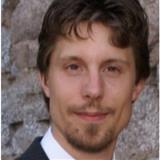
Dr. Messing received his Ph.D from Johns Hopkins School of Medicine in 2008, studying structural biology in the lab of Mario Amzel. While in the lab, he solved the structures of viviparous14, a dioxygenase in maize and key enzyme in abscisic acid production, and the structure of the RNA, pyrophosphohydrolase BdRppH, from Bdellovibrio bacteriovorus involved in RNA decapping. He subsequently moved on to the Laboratory of Fred Dyda at NIDDK, where he worked on transposases and solved the structure of TnpA(REP) from E. coli. In 2015, he joined the Protein Expression Laboratory at Frederick National Labs, where he purifies difficult-to-produce protein reagents for the RAS Initiative.
Carl Mieczkowski, PhD, Director, Allostery Consulting

Carl Mieczkowski earned his PhD from UC Berkeley where he studied protein kinase structure and function under Dr. Tom Alber. He then went into the pharmaceutical industry where he has focused on large-molecule antibody discovery and development predominantly at J&J, BMS, and Merck. There he has brought multiple therapeutics to the clinic and market, and has published several first author publications and patents in the areas of antibody developability, analytics, and formulation.
Carter A. Mitchell, PhD, CSO, Purification & Expression, Kemp Proteins, LLC

Dr. Carter Mitchell is the CSO for Kemp Proteins, leading a team of 40+ researchers in the rapid development of novel proteins in an ISO13485- and AAALAC-accredited lab. Dr. Mitchell is a protein chemist and structural biologist with 20 years of direct experience isolating and characterizing difficult proteins from a variety of recombinant and natural sources. Over more than 20 years, he has been exposed to a wide range of structural and biochemical techniques, and developed interests in understanding the development and manufacture of modern biotechnology products. He earned a PhD in Structural Biology where he enzymatically and structurally characterized multidomain proteins involved in metabolite biosynthesis. He developed and led a drug discovery pipeline with a team of scientists that isolated and characterized bioactive small-molecules and peptides from mammalian microbiomes. At the National Cancer Institute, Dr. Mitchell focused on the isolation of bioactive proteins from marine aqueous extracts, which required creative purification strategies earning the Director’s Innovation Award. Prior to joining Kemp Proteins, he was the CTO and Director of Structural Biology at a Biotech start-up where he built, developed, and implemented a protein expression and purification laboratory and managed the protein production and purification team. At Kemp Proteins, Dr. Mitchell acts as the Principal Investigator for numerous programs while striving to improve the technical understanding and capabilities of the group.
Deborah Moore-Lai, PhD, Senior Director, Protein Development & Production, R&D Leadership, Abcam

Deborah joined Abcam in 2019 to lead the Proteins Initiative, which included building out laboratory space and recruiting a team of scientists with skills in protein expression, purification, and assay development. Prior to Abcam, she spent 16 years working in both the reagent and therapeutic spaces. For many years she led Antibody Production at Cell Signaling Technology. From there she joined Merck Research Laboratories, where she led the team responsible for antigen & antibody generation within Biologics Discovery.
- Intelligent Antibody Discovery - Part 2
- Intelligent Antibody Discovery - Part 1
- Safety & Efficacy of Bispecific Antibodies, ADCs and Combination Therapy
- Viral Vector Engineering & Scale-Up Considerations
- Developability of Bispecific Antibodies
- Characterizing Protein Aggregates & Impurities
- Recombinant Protein Expression & Production
- Cell Line Optimization
- Characterization of Biotherapeutics
Andre Mueller, PhD, Marketing Manager Biologics Solutions, Unchained Labs
Andre is the Marketing Manager for Biologics Solutions at Unchained Labs supporting the development of new biologic drugs. His expertise covers fluorescence, static light scattering, and dynamic light scattering for biophysical characterization of proteins and viral vectors. His research experience spans from structural biology to plant physiology and across labs in Germany, Sweden, Denmark, and the USA. Andre earned his PhD at the Carlsberg Laboratory and had a post-doc appointment at Stanford University.
Masaru Muraoka, PhD, Research Scientist, Discovery Biologics, Chugai Pharmaceutical Co. Ltd.

Masaru Muraoka, PhD, is a research scientist at Chugai Pharmaceutical. From 2006 to 2011, he was on the biotherapeutics group in the Formulation Technology Research Department (CMC), where he developed formulations and processes of antibody subcutaneous injection. In 2011, he joined Discovery Research Department and he is now working on protein analysis, early formulations, and the stability-optimization of antibodies.
Vel Murugan, PhD, MBA, Associate Research Professor and Director, Biodesign Institute, Arizona State University

Dr. Vel Murugan is a trained molecular and cell biologist with extensive experience in studying cell cycle regulation, cancer biology, diagnostic test development/implementation, vaccine discovery, and development. Dr. Murugan brings with him a wealth of experience from his time in both industry and academic institutions. Dr. Murugan earned his PhD from the Tata Institute of Fundamental Research and completed his postdoctoral work at The University of Texas at Austin and Dana-Farber Cancer Institute in Boston. Prior to joining ASU, he worked on the development of attenuated vaccine against Malaria at Sanaria, Inc. He has contributed more than 40 original research publications, reviews, and book chapters. At the Center for Personalized Diagnostics, he led a team that developed a high-throughput diagnostic test to detect and quantify radiation exposure in humans. His laboratory studies epigenetic changes in response to environmental exposures and develops epigenetic-biomarker based diagnostic tests to detect exposures to toxic chemicals, pathogens, explosives, and radiological agents.
Hayato Nagano, PhD, Researcher, Biopharma Solutions Group, Research Institute for Bioscience Products & Fine Chemicals, Ajinomoto Co., Inc.
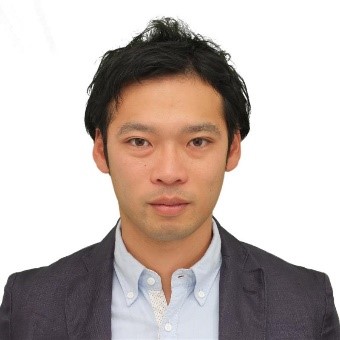
Hayato Nagano holds a PhD in Engineering (protein science) from University of Tsukuba. For over 10 years, he has engaged in purification process development and tech transfer of biopharmaceuticals produced by Corynex®, Ajinomoto’s patented protein expression technology. Hayato experienced tech transfer and cGMP manufacturing of drug substances and plasmid DNA at Ajinomoto Bio-Pharma Services US (formerly Ajinomoto Althea Inc) during his career. Currently, Hayato is lead researcher of Corynex® at Ajinomoto Co., Inc.
Rouba Najjar, MBA, Head of Product Marketing, Product Division, GenScript USA Inc
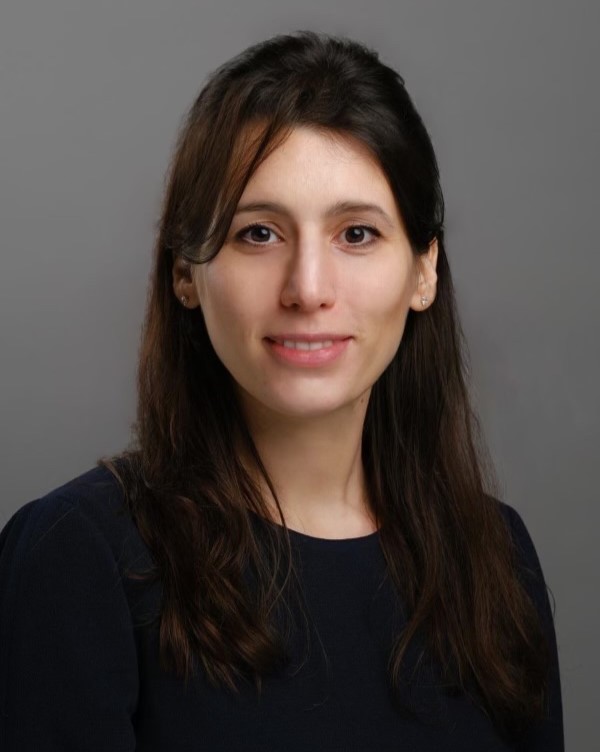
Rouba Najjar is the Head of Product Marketing at GenScript Biotech. With over a decade of experience, she specializes in delivering automated solutions that streamline research and development processes. With a strong passion for automating processes to enhance research outcomes, her team excels in creating innovative, dependable, and high-quality reagents and instruments that cater to a diverse range of life science research and development domains.
Luke Nelson, Senior Scientist, R&D, Merck

Luke received his PhD from the University of California Irvine, where his research focused on identifying and targeting molecular drivers for multiple cancers, including triple negative breast cancer. Luke then Joined Merck in 2020, and currently works on the development and genetic characterization of production cell lines for biological therapeutics. When he’s not in the lab, Luke enjoys all outdoor activities including hiking, trail running, rock climbing and a little bit of gardening, and spending as much time as possible with his wife and dog.
Kathy Ngo, PhD, Associate Director, Cell Engineering, CHO Plus

Kathy Ngo has more than 10+ years of experience in academia and the pharmaceutical industry in a broad range of focus areas, including molecular biology, stem cell biology, neurobiology, cell signaling, gene therapy, and monoclonal antibodies development. Dr. Ngo has co-authored over 15 research papers, reviews, and patents with deep expertise in cell engineering technology platforms, cell culture processes, and CMC. Prior to CHO Plus, Dr. Ngo has previously developed multiple technology platforms, including a CRISPR-based technology to enhance antibody production and has spearheaded the development of a microfluidics-based HTS platform for rapid, single-cell lead clonal selection of CHO cells for monoclonal antibody production. At CHO Plus, Dr. Ngo has led the development of the company’s core cell engineering platform to overcome the current industry manufacturing challenges in both therapeutic antibodies and gene therapy.
Miroslav Nikolov, PhD, Senior Scientist & Laboratory Head, Roche

Miroslav grew up in Bulgaria, and before joining Roche in 2017, he spent multiple years working on mass spectrometry-based proteomics approaches, protein biochemistry and lab automation. At the mass spectrometry department in Large Molecule Research (LMR) at Roche Innovation Center Munich (RICM), he leads an MS lab, focused on automation, data management and software. Besides that, his lab and department cover MS analytics and are responsible for characterization of molecules from early research to entry into clinical development. Outside of work, he gets excited about music, technology innovation, gadgets and fast cars.
Thomas Nittoli, PhD, Senior Director, Therapeutic Proteins, R&D Chemistry, Regeneron Pharmaceuticals, Inc.

Tom Nittoli has over 20 years of experience in the pharmaceutical industry and is currently Senior Director of R&D Chemistry. Tom joined Regeneron in 2010 to advance conjugated antibodies and proteins from discovery to development. Since joining Regeneron, he has developed a variety of small molecules for protein conjugation, led diverse teams of discovery ADC scientists, and led cGMP synthesis and conjugation campaigns. Prior to Regeneron, Tom held positions at Pfizer, Wyeth, and CIBA-Giegy. He holds a PhD from the department of chemistry SUNY Stony Brook and was a post-doctoral fellow at the University of Pennsylvania.
Paul Parren, PhD, CSO, Gyes; Professor, Molecular Immunology, Leiden University Medical Center

Professor Paul W.H.I. Parren is dedicated to translating antibody knowledge into innovative therapeutics and technologies. He holds a PhD in molecular immunology from the University of Amsterdam (1992). Professor Parren was an Associate Professor at The Scripps Research Institute in La Jolla, California. From 2002-2017, he led research and preclinical development at Genmab, and from 2018-2023 he was head of R&D at LAVA Therapeutics, a Nasdaq-traded biotechnology company that develops bispecific gamma-delta T cell engagers to transform cancer therapy. His work contributed to eight approved therapeutic antibodies (incorporated in ten antibody products), including multiple products from the DuoBody bispecific antibody platform. He has a strong publication record with >230 scientific publications (>37,000 citations and an h factor of 102; Google Scholar Jul. 7, 2023) and >220 granted patents in US, EU and JP). He is a tenured Professor of Molecular Immunology at the Leiden University Medical Center in Leiden. He is CEO of Sparring Bioconsult BV, a consulting company that provides independent drug development advice. He is a founder and CSO at Gyes BV, a start-up company developing multi-specific antibody technologies. He chairs the board of directors of The Antibody Society, a non-profit trade organization that develops initiatives to forward the antibody field.
Andrea Partridge, PhD, Senior Scientist, Protein & Structural Chemistry, Merck & Co., Inc.

Andrea (Drea) Partridge is a Senior Scientist in the Structural Protein Sciences department at Merck in West Point, PA. She utilizes various expression platforms to enable structural determination and biophysical characterization of proteins for drug discovery. Expression systems include manual and automated baculovirus and mammalian platforms. Drea obtained her PhD in microbiology and immunology from Drexel University College of Medicine while studying a senescent-like phenotype induced by HIV-1 infection of macrophages. In her spare time Drea likes to garden, hang out with her family, watch monster movies, and listen to her favorite band Ghost.
Hailee Perrett, PhD, Research Associate, Scripps Research Institute

Dr. Hailee Perrett is a structural biologist affiliated with the Scripps Research Institute, where she recently earned her PhD in Biophysics. Her research combines cryo-electron microscopy and other biophysical and molecular biology techniques to investigate type I viral fusion glycoproteins, how they interact with host cells, and how they are recognized by the immune system. This approach enables molecular level definition of key interactions between the viral fusion glycoproteins-like those of HIV, SARS-CoV-2, influenza, and Lassa-and their binding partners. Her work with Lassa’s glycoprotein complex has led to the description of new antibody classes, the introduction of new reagents to the field, and valuable insights on its immune evasion mechanisms which have and will continue to inform Lassa vaccine design. Dr. Perrett is also deeply committed to science communication and art. She has actively engaged with the general public through her illustrative work on the Science, Simplified series during the SARS-CoV-2 pandemic and continues creating visuals with the intent of making science more accessible and engaging. Her work has been recognized with an Excellence in Journalism award from the San Diego Press Club and by Folio Magazine.
Nikolai Petrovsky, PhD, Research Director, Vaxine Pty Ltd.

Professor Nikolai Petrovsky is Research Director of Vaxine, an Adelaide-based biotechnology company focused on vaccine development. He has been awarded over 50 million dollars in grants from the U.S. National Institutes of Health for his vaccine research. He has authored over 200 peer-reviewed research papers and is an inventor on multiple vaccine patents. In 2020, he developed the Covax-19/SpikoGen vaccine against COVID-19 that in October 2021 received emergency use authorization, making it the first recombinant protein COVID-19 vaccine in the world to achieve regulatory approval and the first Australian-developed human vaccine over the last 40 years.
Michael Poltash, PhD, Senior Scientist, Janssen Pharmaceuticals

Dr. Michael Poltash is a senior scientist at Janssen Pharmaceuticals who is responsible for deploying innovative mass spectrometry methods to characterize and elucidate complex phenomena in biotherapeutics. Michael believes that automation will play a fundamental role in the expansion and innovation of drug discovery and development in the near future. Over the last two years, he has played a key role in bringing full end-to-end automation of mass spectrometry workflows to the analytical sciences group in Protein Therapeutics at Janssen. Moreover, he was awarded a Spark Innovation Award at Janssen for his discovery of the mechanisms underlying antibody aggregation. Michael received his BS in chemistry from James Madison University in 2014 and his PhD from Texas A&M University in analytical chemistry in 2019.
Carme Pons Royo, PhD, Postdoctoral Associate, Massachusetts Institute of Technology

Maria del Carme Pons Royo is a bioprocess engineer with experience in development and optimization of biotechnological products. She completed her bachelor's degree in biotechnology from Universitat Autonoma de Barcelona, followed by a master's degree in Life Science and Technology from TU Delft. Recently, she successfully defended her PhD thesis at BOKU, titled "Millifluidic devices to accelerate process development with a primary focus on protein precipitation and filtration." Currently, she is employed as a postdoctoral researcher at MIT, where she continues her research on the development and optimization of innovative bioprocesses utilizing cutting-edge prototyping tools.
Erik Procko, PhD, Director, Discovery, Cyrus Biotechnology; Adjunct Professor, University of Illinois, Urbana
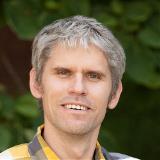
Dr. Erik Procko completed his PhD in 2008 at Harvard University investigating mechanisms for display of antigens to the immune system and was the first to computationally design a de novo protein with function (for the inhibition of a viral oncogene) under the mentorship of David Baker at the University of Washington during his postdoc. He was appointed as an Assistant Professor and later Associate Professor at the University of Illinois, Urbana-Champaign, where he developed methods for deep mutagenesis of complex glycoproteins in human cells. In 2020, he cofounded Orthogonal Biologics for the development of decoy receptors and later joined Cyrus Biotechnology as part of a merger, where today he directs experimental programs for biologic drug development. He also maintains a small group of students at Illinois where he is an Adjunct Professor.
G. Jonah Rainey, PhD, Senior Director, Protein Engineering, Eli Lilly and Company

Jonah Rainey holds a PhD in Biochemistry from Tufts University and completed postdoctoral training at the University of Wisconsin and the Salk Institute. He has engaged in discovery, research, and development of bispecific antibodies for more than 15 years. He is an inventor on several patents describing novel bispecific platforms and current clinical candidates that exploit these platforms as well as an author on almost 30 publications. Jonah contributed to research and early development leading to multiple clinical candidates from Phase I and through approved products and led many advanced preclinical programs in oncology, infectious disease, autoimmunity, and other therapeutic areas. Previous industry experience includes MacroGenics, MedImmune/AZ, Oriole Biotech, Gritstone Oncology, and Alivamab Discovery Services. Currently, Jonah is a Senior Director in Protein Science at Eli Lilly & Co.
Garrett Rappazzo, PhD, Scientist, Platform Technologies, Adimab

As a scientist at Adimab, my work focuses on identifying and engineering protein therapeutics that target peptide-HLA (pHLA) complexes. As part of this work, my team has developed a novel yeast-based platform to engineer soluble T cell receptors (TCRs) as an alternative to antibody-based therapeutics in targeting pHLA complexes. Prior to joining Adimab, I completed my doctoral research at MIT in Prof. Michael Birnbaum’s lab, where I worked to characterize the peptide-binding repertoires of Class II HLA proteins.
Kamal A. Rashid, PhD, President, International Biotechnology Associates

Dr. Kamal Rashid has over forty years of academic experience in research, teaching, and workforce development efforts. During his career he has developed, directed, and implemented biotechnology/biomanufacturing training programs at Albany College of Pharmacy and Health Sciences, Worcester Polytechnic Institute, Utah State University, Penn State University and internationally. He is an expert in animal cell culture technology as has developed and taught graduate courses in cell culture techniques and scale-up strategies for more than thirty-five years. He developed, in collaboration with Penn State faculty and staff the first hands-on animal cell culture training course for the bio-based industry employees in 1989 as part of a comprehensive bioprocessing training program at Penn State University. While a faculty at Penn State, Dr. Rashid established the international biotechnology associates (IBA) in 1977 as a strategic consulting partner for companies, institutions and government agencies, helping them bring life-changing bio-based products to people around the world. Operating on a model of collaboration, Dr. Rashid assembles and leads multidisciplinary teams to support specific client initiatives. Dr. Rashid received his Ph.D. from Penn State University with superior ranking.
Palaniswami (Swami) Rathanaswami, PhD, CEO, PRSwami AbDev Inc.
-jpg_77a600a5-dcf5-4ace-9868-f234d69de115.tmb-.jpg?Status=Master&sfvrsn=59534a7e_6)
World’s leading expert Scientist in Antibody affinity and kinetic characterization, especially for measuring femto molar affinities of antibodies for soluble and on-cell targets. World expert in solution binding measurements and using KinExA technology. Extensive user of SPR and BLI technologies. Experienced SME as Functional Lead for human therapeutic antibody programs and drug product development. Dedicated career to advancing medical research to alleviate disease and make individuals lives better. Consultant for leading biotech organizations on high throughput screening, affinity measurements and antibody drug product development. Did extensive research, over 40 years in the fields of Endocrine Biochemistry, Molecular Endocrinology, Inflammation Immunology-Rheumatology, Human therapeutic antibody generation, engineering and characterization (including immunization, high throughput binding and functional screening and very high affinity kinetic measurements). A key member of a team of 5 Scientists who developed SLAM technology for human therapeutic antibody generation and spun to a Canadian Biotech company - Immgenics Inc., and later acquired by Amgen. First Scientist to generate human antibodies by Single Cell RT-PCR amplification of V genes from antibody producing single B Cells, molecular cloning and express as full antibody. Published over 40 articles in very high impact Scientific Journals and inventor of over 20 scientific patents. Worked for Amgen 25+ years and generated over 100 human therapeutic antibodies of which about 5 are already used as pharmaceutical drugs in market. Invited speaker in national and international conferences, Universities and Research institutes across the globe. Chaired sessions in international conferences and seminars. Dr. Palaniswami Rathanaswami graduated in MSc (Biochemistry, Faculty of Medicine) and a PhD (Biochemistry), University of Madras, India.
Reda Rawi, PhD, Staff Scientist & Co-Head, Structural Bioinformatics Core, NIH NIAID

Dr. Reda Rawi is currently a Staff Scientist and the Co-Head of the Structural Bioinformatics Core at the NIH's Vaccine Research Center (VRC). He earned his Diploma in Mathematics from the Applied University of Koblenz, Germany in 2007, his MSc in Bioinformatics from the Birkbeck college at the University of London, UK in 2008, and his PhD in Computational Biology from the University of Duisburg-Essen, Germany, in 2013, working with Prof. Dr. Daniel Hoffmann. After completing his PhD, Reda accepted a position as a postdoctoral scientist at the Qatar Computing Research Institute in Doha, Qatar, where he worked for 2.5 years. During that time, he developed and applied novel machine learning tools for structural biology related projects. In 2016, Reda was awarded a NIH postdoctoral fellowship and joined the Structural Bioinformatics Core of the VRC, the world's leading research facility for vaccine design. Within just 3 years he was promoted to a Staff Scientist and co-head of the core. While at the VRC Reda was leading multiple vaccine design and antibody improvement efforts targeting a diverse set of pathogens, such as HIV-1, Influenza, or Malaria. Reda introduced the computer science field of advanced machine learning to the VRC and successfully applied his expertise to solve scientific tasks of critical importance. Dr. Rawi has over 50 peer-reviewed publications and was invited to multiple conferences to update on his work.
Da Ren, PhD, Founder & CEO, BioTherapeutics Solutions

Dr. Da Ren is the founder and CEO of BioTherapeutics Solutions, an analytical solution provider for the biopharmaceutical industry. Prior to starting BioTherapeutics Solutions, he was a Scientific Director at Amgen in charge of analytical platforms and global strategy of the Multi-Attribute Method (MAM). In 2015, he led the first-in-industry implementation of MAM in the cGMP environment. Since then, MAM has been accepted by over 30 regulatory agencies around the world. Da is on the advisory board of several companies and serves multiple roles in industry-wide organizations including USP, CASSS, ASMS, and MAM Consortium. Prior to Amgen, Da was a Senior Applications Chemist at Waters Corporation. He received his PhD in Analytical Chemistry from the University of Akron in 2002.
Ashish Saksule, Principal Scientist & Lead, Vector Core, Vertex Pharmaceuticals, Inc.

Ashish Saksule has a background in Cell and Gene Therapy process development, specializing in bioprocessing & and production. With a focus on both upstream and downstream processing, Ashish boasts comprehensive production knowledge of Lentiviruses, AAV, live viruses, and proteins. With over 9 years in the field, his experience spans research, clinical-stage vaccine development, cell and gene therapy process development, preclinical production, and clinical manufacturing. Ashish earned a Biotechnology degree from Harvard University and a Chemical Engineering degree from Michigan Technological University. He currently oversees the Vector Core facility at Vertex Pharmaceuticals' Cell and Gene Therapy department. He previously worked as the Vector Production Lead at Takeda's Rare Disease Gene Therapy program and worked as a scientist on Virus and Gene Therapy process development for AAV & LV at MilliporeSigma. Earlier in his career, he worked with Lentigen (Miltenyi Biotec) on Lentivirus process development and vaccine process development at Novavax.
Alex Santos, MS, Regulatory Scientist, Voisin Consulting Life Sciences

Alex Santos has demonstrated a successful track record of bringing novel cell & gene therapies to the clinic as an individual contributor. Over the course of his career, Santos has developed and transferred several cell & gene therapies targeting oncological, hematological, and congenital etiologies. Alex specializes in the development of analytics for cell and gene therapies, his particular focus being the development of potency assay matrices. Santos has served in progressively responsible scientific and leadership roles within the Biotechnology and Biopharmaceutical field, working for companies including Be Biopharma, bluebird bio, and Shire Pharmaceuticals. Alex holds an MSc in Medicinal Chemistry from the University of Coimbra (Coimbra, Portugal) and a Master of Public Administration (MPA) from Clark University (Worcester, MA, USA). Prior to his graduate education, Alex earned his Post-Baccalaureate in Pre-Medical Sciences from Harvard University (Cambridge, MA, USA), and a B.A. in Psychology from Clark University (Worcester, MA, USA).
Kumkum Saxena, PhD, Vice President & Head, R&D, Versatope Therapeutics

As Vice President and Head of Research and Development at Versatope Therapeutics, Kumkum guides the strategic vision of an immuno-therapeutic company that harnesses a customized biotechnology platform to deliver immunity. Her leadership at Versatope has played a pivotal role in developing a proprietary cell line, optimizing upstream and downstream processes, implementing analytical methods and tech transfer for the production of the broad-strain influenza vaccine candidate, VT-105 for clinical trials. Recognized for her expertise in Protein Science, Kumkum possesses an intricate understanding of Protein Structure & Function, complemented by extensive proficiency in large and small-molecule drug discovery. Kumkum's professional journey includes a prior role as Director of Protein Biochemistry and Biophysics at Vertex Pharmaceuticals. Her academic trajectory entails a PhD in Biochemistry and Biophysics from Boston University, followed by two intensive Postdoctoral trainings in Cell Biology and Structural Biology at Harvard University.
Adam Schieferecke, PhD, Postdoctoral Scholar, California Institute for Quantitative Biosciences, University of California, Berkeley

Adam Schieferecke grew up in rural Kansas and is currently a PhD candidate in the laboratory of Professor David Schaffer at the University of California, Berkeley. With over 10 years of training in basic and applied virology, Adam’s current research focuses on the application of directed evolution principles to engineer improved DNA virus-based gene delivery systems to treat human diseases. Adam’s work has been recognized with prestigious honors such as the Barry Goldwater Scholarship, National Science Foundation Graduate Research Fellowship, co-authorship on five peer-reviewed publications, co-inventorship on two international patent applications, and invitations to speak at events such as a TEDx Talk, the Berkeley Stem Cell Center Retreat, and the American Society of Gene and Cell Therapy’s Annual Meeting.
Philipp Schmid, Dr., Process Development, Wacker Biotech
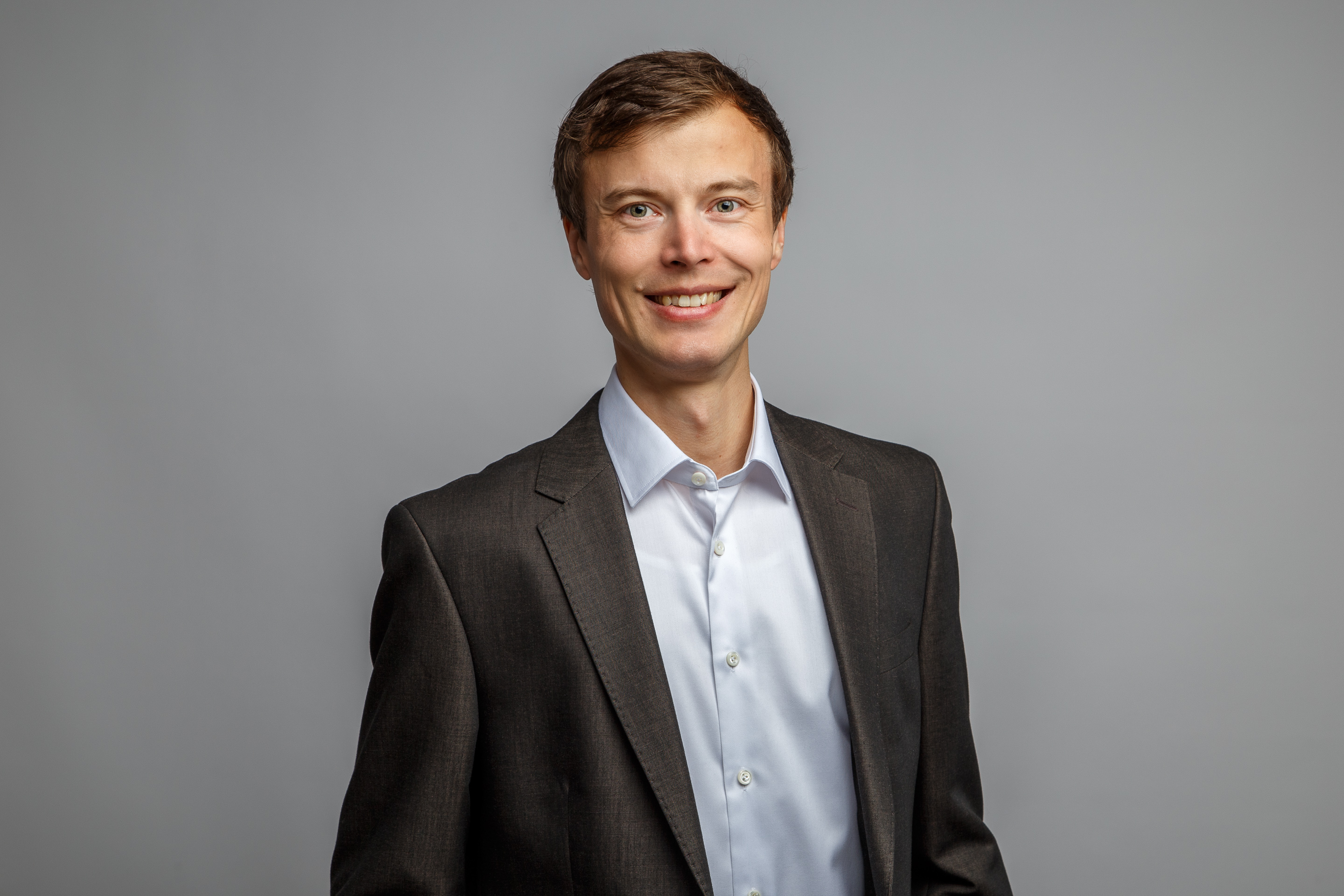
Philipp Schmid is a biochemist and molecular biologist. Part of his Ph.D. work at the Technical University of Munich involved lab-scale production and characterization of aggregation-prone proteins. Following along these lines, he joined WACKER in late 2019 as an R&D manager and focused on laboratory automation to streamline feasibility studies using WACKER’s proprietary ESETEC® platform. Recently, he joined the WACKER San Diego team to explore the world of nucleic acids.
Jan E. Schnitzer, MD, Institute Director, Proteogenomics Research Institute for Systems Medicine

Dr. Schnitzer, MD, has devoted more than 30 years to understanding vascular endothelial cell barrier function and drug delivery in medicine, specifically how best to overcome this barrier to improve therapeutic impact of drugs in cancer, lung, and other diseases. His lab currently focuses on drug delivery systems, small animal intravital and whole body imaging, how caveolae function in transport, proteomic mapping of endothelial cell surface and its caveolae in normal and diseased tissues, antibody engineering, nanocarriers, ADCs, and new therapeutics in cancer and lung disease. Dr. Schnitzer is the CEO and founder of Proteogenomics Institute for Systems Medicine. Dr. Schnitzer has a BSE degree in Chemical Engineering from Princeton University and MD from University of Pittsburgh. He also trained as a postdoctoral fellow in cell biology at Yale University School of Medicine. He is also a Faculty Member at the Institute of Engineering for Medicine at UCSD.
Simona Serban, Dr, Global Application Director, Life Sciences Division, Sunresin New Materials Co. Ltd
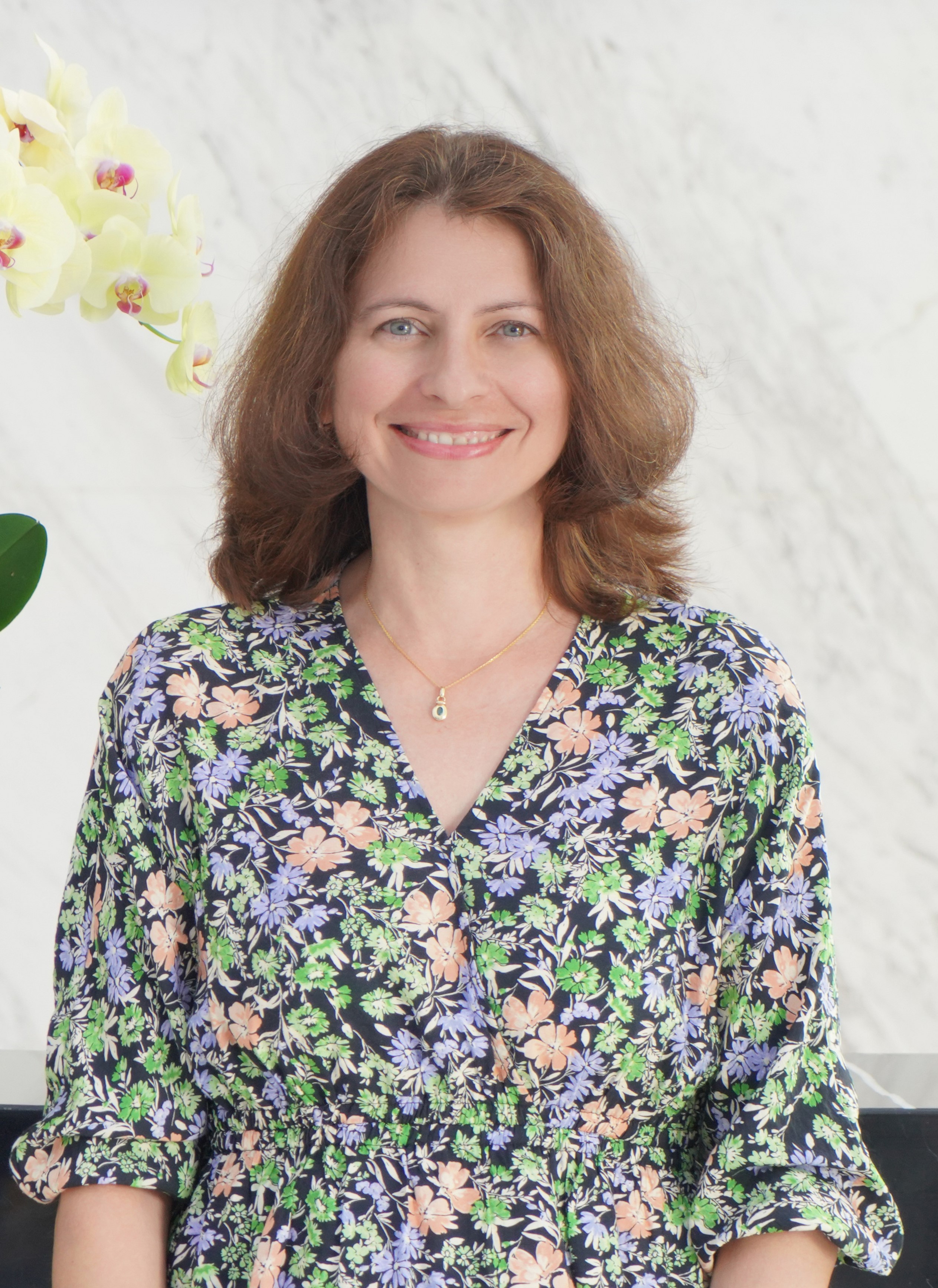
Dr. Simona Serban lives in UK and has 20 years of experience in closely working with customers to achieve success in their chromatographic, biocatalytic, SPPS or SPOS processes. Recently, Simona joined Sunresin New Materials Co. Ltd. as Global Applications Director for Life Science division supporting customers and R&D colleagues in delivering performance.
Susan Sharfstein, PhD, Professor, Nanobioscience, Nanoscale Science and Engineering, SUNY Polytechnic Institute

Susan Sharfstein is a Professor of Nanobioscience at SUNY Polytechnic Institute in Albany, New York. Professor Sharfstein received her B.S. in chemical engineering with honors from Caltech in 1987 and her Ph.D. in chemical engineering from UC Berkeley in 1993. Her interests include mammalian and microbial cell bioprocessing, control of protein glycosylation, metabolic engineering, biosensing, and development of systems for high-throughput screening of nucleic acids and small molecules. She is the author of over 65 papers and book chapters in the fields of biotechnology and bioprocessing.
Govinda Sharma, PhD, Founder, Immfinity Biotechnologies

Govinda completed his PhD from the University of British Columbia while conducting his thesis work at the British Columbia Cancer Research Institute in Vancouver, Canada. His work during this time was focused on developing platforms for conducting high-throughput screening of T cell receptor reactivity to do antigen discovery and profile candidate therapeutic T cell receptor crossreactivity. He is a co-founder and current CTO of Immfinity Biotechnologies, a spin-out of BC Cancer dedicated towards commercializing these novel platforms and supporting TCR therapeutics development efforts at partner companies. He also holds a Staff Scientist position with BC Cancer where he is a part of Canada's Michael Smith Genome Sciences Centre.
David Sloan, PhD, Vice President, Applications and Product Management, RedShiftBio
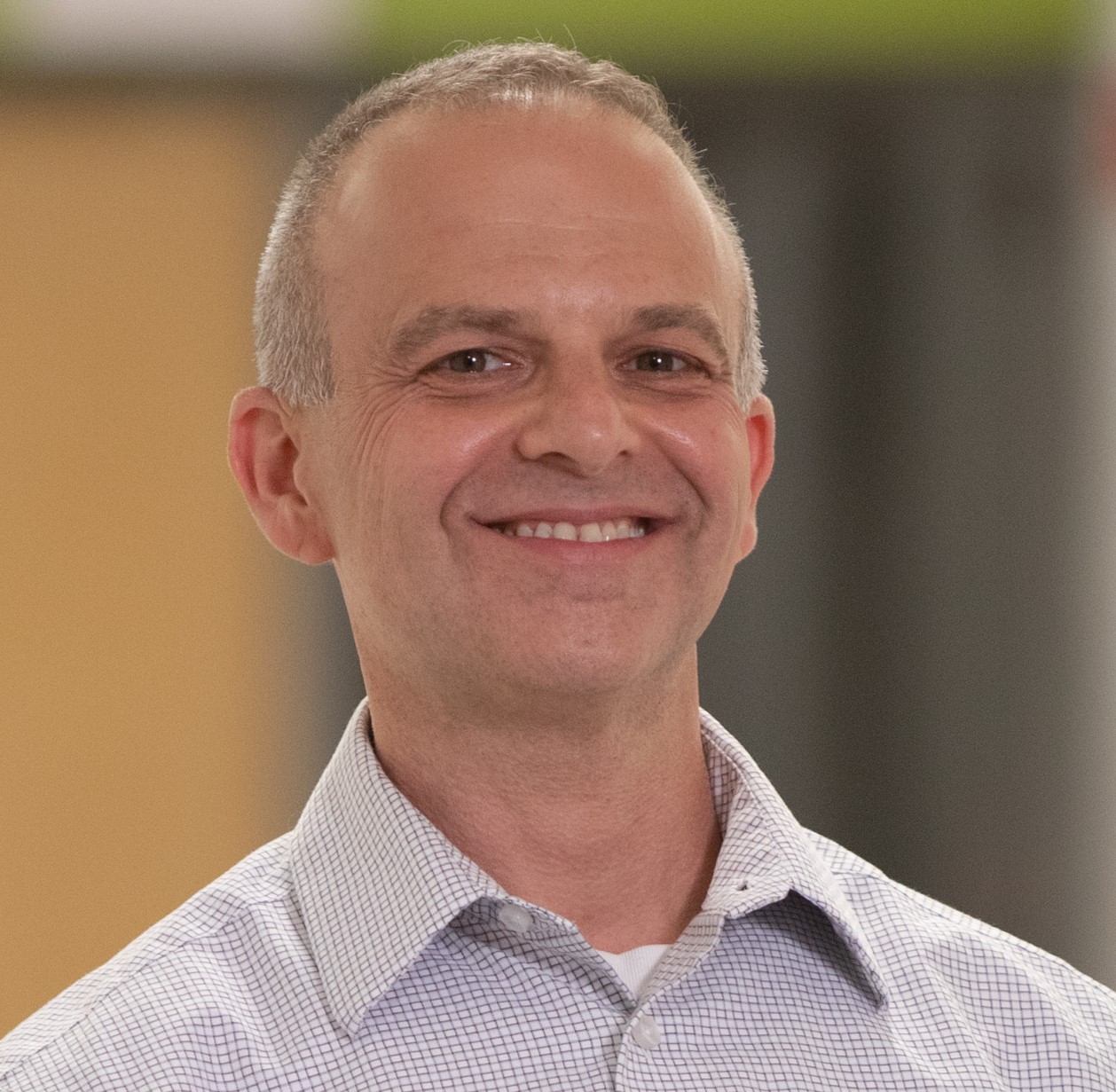
David Sloan is the Vice President of Product Management and Applications at RedShiftBio. He has worked in the biotechnology industry for the past 20 years and has always focused on customer satisfaction. David is most interested in learning about new research areas and developing novel applications on cutting edge technology platforms to solve real world problems. David received his PhD from Duke University Medical Center in the Department of Pharmacology and Cancer Biology and studied protein-protein interactions with the goal of identifying novel therapeutics. His bachelor’s degree is from Cornell University, with dual degrees in Biology and Chemistry.
Eric Smith, PhD, Senior Director, Bispecifics, Regeneron Pharmaceuticals, Inc.

Dr. Eric Smith received his PhD in Microbiology and Immunology from Duke University in 1997. Following a postdoctoral fellowship at NYU he joined Regeneron in 2002 as a member of the Antibody and Trap Technologies group, where he worked on cytokine traps and related molecules. In 2008 he was a founding member of the Bispecific Antibodies team and is currently the Executive Director of Bispecifics at Regeneron.
Daniel Smith, PhD, Head, Computation, FL83

Daniel is currently heading the computational and automation division of a Flagship NewCo for protein design and was previously a co-founder at Entos, a small-molecule drug discovery company focusing on the fusion of machine learning and high-throughput experimentation. Before Entos, Daniel was at MolSSI, an NSF-funded organization to advance computational molecular science; while there, he traveled and spoke to researchers all over the globe and built computational frameworks such as QCArchive. He has extensive experience integrating wet labs with a digital landscape, building computational platforms, and placing machine learning capabilities in the hands of experimentalists.
Nithya Srinivasan, PhD, Principal Scientist, Amgen

Nithya Srinivasan is a Principal Scientist in the Therapeutic Discovery group at Amgen and has led the advancement of multiple early-stage products from early discovery to process development. She has a strong scientific background in protein biochemistry and biophysics. Nithya holds a doctoral degree from Pennsylvania State University and was a postdoctoral researcher at University of California, Berkeley, prior to joining Amgen.
Paolo Tarantino, PhD, Research Fellow, Breast Oncology, Dana Farber Cancer Institute, Harvard Medical School

Paolo Tarantino is a medical oncologist and clinical researcher. He’s currently pursuing an advanced research fellowship at Dana-Farber Cancer Institute and at Harvard Medical School (Boston, MA) and a PhD in clinical research at the University of Milan. His research focuses on the study of the HER2 oncoprotein, the biology of HER2-low breast tumors, and the development of novel antibody-drug conjugates.
Peter M. Tessier, PhD, Albert M. Mattocks Professor, Pharmaceutical Sciences & Chemical Engineering, University of Michigan
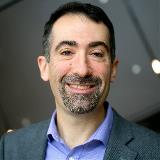
Peter Tessier is the Albert M. Mattocks (Endowed) Professor in the Departments of Chemical Engineering, Pharmaceutical Sciences and Biomedical Engineering, and a member of the Biointerfaces Institute at the University of Michigan in Ann Arbor, MI. He received his Ph.D. in Chemical Engineering from the University of Delaware (2003, NASA Graduate Fellow) and performed his postdoctoral studies at the Whitehead Institute for Biomedical Research at MIT (2003-2007, American Cancer Society Fellow). Tessier started his independent career as an assistant professor in the Department of Chemical & Biological Engineering at Rensselaer Polytechnic Institute in 2007, and he was an endowed full professor at Rensselaer prior to moving to the University of Michigan in 2017. Tessier’s research focuses on designing, optimizing, characterizing and formulating a class of large therapeutic proteins (antibodies) that hold great potential for detecting and treating human disorders ranging from cancer to Alzheimer’s disease. He has received a number of awards and fellowships in recognition of his pioneering work: Pew Scholar Award in Biomedical Sciences (2010-2014), Humboldt Fellowship for Experienced Researchers (2014-2015), Young Scientist Award from the World Economic Forum (2014), Young Investigator Award from the American Chemical Society (2015) and NSF CAREER Award (2010-2015).
Garima Thakur, PhD, Process Development Engineer III, Viral Production Core, Regeneron Pharmaceuticals, Inc.

I am working on developing downstream processes for rAAV and other viral vectors for gene therapy applications at Regeneron. I am currently in the Viral Production Core team of the Preclinical Manufacturing and Process Development group. I earned my PhD in Chemical Engineering in the area of process control and continuous manufacturing of mAbs at the Indian Institute of Technology Delhi.
Anthony W. Tolcher, MD, FRCPC, FACP, CEO & Founder, NEXT Oncology

Dr. Tolcher is CEO and Founder of NEXT OncologyTM, San Antonio, Texas, a newly founded Phase I group that seeks to transform early clinical trials. NEXT Oncology’s mission is to accelerate the next breakthrough medicines for cancer and the vision is to be the most successful and respected Phase I program in oncology research. Dr. Tolcher served as President and Co-Founder of START LLC from 2009- 2018, one of the world’s largest Clinical Phase I and early drug development operations in cancer medicine with 5 locations in San Antonio Texas; Grand Rapids, Michigan; Madrid Spain; and Shanghai China. Dr. Tolcher is a medical oncologist who has over 25 years’ experience in early drug development and clinical trials. He has been involved in many of the initial phase I studies of new agents that subsequently were FDA approved for the treatment of cancer including pembrolizumab (Keytruda), copanlisib (Aliqopa), trastuzumab emtansine (Kadcyla), regorafenib (Stivarga), liposomal vincristine (Marqibo), cabazitaxel (Jevtana), carfilzomib (Kyprolis), gefitinib (Iressa), erlotinib (Tarceva), and eribulin (Halaven). He is currently the principal investigator on 20 phase I clinical studies, is a reviewer for the Journal of Clinical Oncology, Clinical Cancer Research, and Annals of Oncology. He has chaired the Developmental Therapeutics Review Committee for the American Association of Clinical Oncology Annual Scientific Program. He has a member of over 20 Scientific Advisory Boards for both large and small pharmaceutical companies, as well as a member of the Board of Director for 2 biotechnology companies. Dr. Tolcher has over 100 peer-reviewed publications in scientific journals including Nature, Proceedings of the National Academy of Sciences (USA), Journal of Clinical Oncology, and Clinical Cancer Research, as well as an author of nine book chapters.
Tony Tomas, Dr, Field Application Scientist, Global Field Applications, Purolite, An Ecolab Company
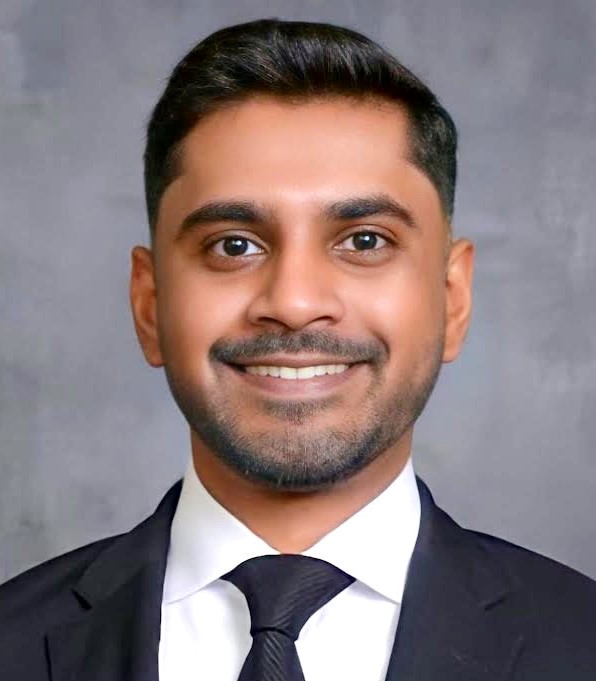
Tony Thomas is a Field Application Scientist at Purolite, he supports customers across all facets of chromatography purification leveraging advanced Jetted technology within the Purolite product portfolio to achieve customer success.
Tony graduated from Texas A&M University with a degree in Biomedical Science and Chemistry and Texas A&M University with his Master of Public Health degree in Epidemiology. He completed his Ph.D. in Chemical Engineering at Swansea University in Wales, UK.
Eric Vajda, PhD, Vice President, Preclinical R&D, OmniAb

Eric Vajda is Vice President, Preclinical Research and Development at OmniAb. Dr. Vajda has more than 20 years of biopharma experience in pharmacology and preclinical development. Prior to OmniAb, Dr. Vajda was Vice President of Preclinical R&D at Ligand Pharmaceuticals. From 2002-2022, Dr. Vajda had leadership roles in multiple research projects at Ligand including the Selective Androgen Receptor Modulator (SARM) program, Interleukin-1 Receptor Associated Kinase 4 (IRAK4) program, and Glucagon Receptor Antagonist program. Prior to Ligand, Dr. Vajda was a Senior Research Scientist at Bayer Corporation in the osteoporosis and cancer research departments. Dr. Vajda has served as a reviewer for multiple scientific journals and has authored more than 50 scientific publications and presentations. Dr. Vajda earned a BS from Yale University and PhD in Bioengineering from the University of Utah, held a research fellowship position at the Klinik Wilhelm Schulthess in Zurich, Switzerland, and completed postdoctoral research in the Division of Radiobiology at the University of Utah.
Marjolein van Egmond, PhD, Professor, Oncology and Inflammation, Surgery/Molecular Cell Biology and Immunology, Amsterdam UMC

The research group of Dr. van Egmond studies antibody activation of innate myeloid immune cells, macrophages and neutrophils, with emphasis on understanding the role of immunoglobulin A (IgA) in physiology and pathology. Her research focuses specifically on (1) the contribution of abnormal antibody responses to chronic inflammation and autoimmunity and (2) monoclonal antibody therapy of cancer. Dr. van Egmond’s research is highly translational and she has a cross appointment with the Department of Surgery and the Department of Molecular Cell Biology and Immunology, to facilitate the rapid progression of preclinical findings into clinical applications.
Meghan M. Verstraete, PhD, Scientist, Protein Engineering, Zymeworks, Inc.

Meghan Verstraete is a Scientist in the Protein Engineering group at Zymeworks Inc. Since joining the company in 2019, her work has focused on early-stage development of therapeutic antibody-based platforms using IgG, IgA, and IgM molecules. She recently co-authored a paper describing the engineering of a heterodimeric IgA Fc for the development of multispecifics. Meghan currently leads the protein engineering efforts for a next-generation trispecific T cell engager platform with checkpoint inhibition. Meghan received her PhD from the University of British Columbia in the Department of Microbiology and Immunology
Sudhakar Voruganti Voruganti, Dr, Director, Business Development, Pfanstiehl Inc
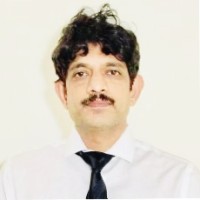
Sudhakar Voruganti is Business Development Director at Pfanstiehl Inc, a world’s leading manufacturer of low endotoxin and high purity GMP grade excipients for biopharmaceuticals. At Pfanstiehl he provides commercial & technical support to the customers. Sudhakar received his doctorate in Biochemistry & Molecular Biology from OSU and has several years of Biopharma research experience. Prior to joining Pfanstiehl he worked for 6 years in the Biologics Analytical Method Development dept at Bristol-Myers Squibb.
Andrew B. Waight, PhD, Senior Director, Machine Learning, Discovery Biologics & Protein Sciences, Merck Research Labs

Andrew Waight is a Senior Director at Merck and Co. and is the team lead on the MRL Discovery Biologics AI/ML initiative to develop and deploy computational tools to help scientists make informed decisions and deliver better clinical candidates faster.
Ross Walton, PhD, Senior Application Scientist, Unchained Labs
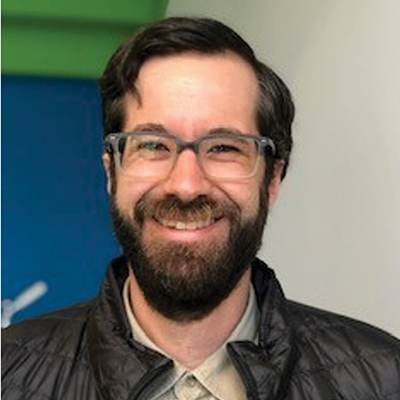
Ross Walton is a Senior Application Scientist for Biologics at Unchained Labs. He has published works on single-particle protein analysis by transmission electron microscopy and the interaction of the innate immune system and viruses in cancer. He did his undergraduate work at UC Berkeley and earned his PhD in Molecular Genetics and Microbiology from Duke University.
Xiangdan Wang, PhD, Senior Principal Scientist, BioAnalytical Sciences, Genentech, Inc.
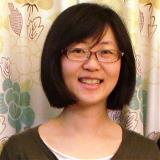
Dr. Xiangdan Wang is an experienced bioanalytical scientist with more than 17 years of experience in the biotech/pharmaceutical industry. Dr. Wang obtained her PhD in Bioanalytical Chemistry from Rensselaer Polytechnic Institute in 2006. She then joined Genentech and has been focusing on biophysical characterization of proteins and understanding protein-protein interactions using label-free biosensor-based methods. She is currently working as a Senior Principal Scientist in the Bioanalytical Sciences Department at Genentech. Dr. Wang has supported many projects by providing critical biomolecular interaction characterization data that were included in regulatory submission documents, reports, and publications.
Wei Wang, PhD, Professor, Chemistry and Biochemistry, University of California San Diego

Wei Wang is a Professor in the Department of Chemistry and Biochemistry and Department of Cellular and Molecular Medicine at University of California, San Diego (UCSD). His research is focused on uncovering the regulatory architecture of the genome and understanding the underlying principles at genomic and molecular levels. One of the focus areas of his lab is to develop new AI technologies for engineering antibody and protein binding to specific targets.
Songyu Wang, PhD, Senior Scientist, Protein Technologies Group, Amgen

Songyu Wang is a principal scientist at Protein Design group of Discovery Protein Science at Amgen Inc, South San Francisco. Her main responsibility is to use structural-based protein engineering approach to design multi-specific surrogates and immunogens to impact various pipeline programs. She also actively uses her expertise in protein biochemistry to develop expression and purification strategies for challenging proteins and complex multi-specifics to ensure the delivery of high-quality proteins for downstream studies. Prior to joining Amgen in 2017, Songyu was a Research Fellow at Harvard Medical School, researching in vitro reconstitution of a membrane network using purified components. She completed her PhD training in molecular and cellular biology at National University of Singapore in 2011.
Qiong Wang, PhD, Senior Scientist, Mammalian Expression, Pfizer

Biotechnological researcher focusing on the protein expression and the virus expression from mammalian cells. I have expertise in mammalian cell engineering and cell line generation. Moreover, also as a glyco-engineer, I have expertise on glycan and glycopeptide analysis using mass spectrometry.
Joseph Watson, PhD, Postdoctoral Fellow, Institute for Protein Design, University of Washington

Joseph Watson is an EMBO Postdoctoral Fellow in the Baker lab at the Institute for Protein Design at the University of Washington. Joseph works on developing generative deep learning methods for protein design, including RFjoint inpainting and RFdiffusion. Previously, Joseph completed his PhD at the Laboratory of Molecular Biology at the University of Cambridge, UK, under the supervision of Emmanuel Derivery. Before then, Joseph completed his undergraduate degree at the University of Oxford.
Kathy Y. Wei, PhD, Co-Founder & CSO, 310 AI
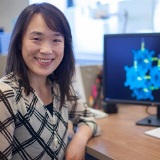
Kathy earned her PhD in RNA synthetic biology with Christina Smolke at Stanford. She then went to a postdoc at the University of Washington in the Institute of Protein Design with David Baker, where she used Rosetta to computationally design de novo protein switches. Kathy then went to UC Berkeley to work with Daniel Fletcher, where she helped cross-pollinate the Baker and Fletcher labs. She began to apply her skills in industry at Amgen, where she led the AmgenFold team, which deploys state-of-the-art ML structure prediction methods for internal use. Now, she is co-founder and CSO for 310 AI, a generative AI company for designer biology. 310 AI believes that the design of novel biomolecules is the single largest advancement that can be enabled by AI.
Alon Wellner, Vice President, Biology, Co-Founder, Aureka Biotechnologies

Alon is the co-founder of Aureka Biotechnologies, where he currently holds the position of Vice President of Biology. With over five years of experience as a senior postdoctoral scholar at UC Irvine, he specialized in developing advanced systems for accelerated antibody engineering. Alon's work involved integrating yeast surface display with orthogonal replication techniques. He obtained his PhD from the prestigious Weizmann Institute of Science in Israel, under the guidance of the late Dan Tawfik.
Caitlin V. Wood, PhD, Associate Principal Scientist, Merck & Co., Inc.

Caitlin V. Wood, PhD, is an Associate Principal Scientist in the Materials and Biophysical Characterization group at Merck & Co., Inc. She has three years of biologics drug product development experience and particularly specializes in characterizing protein higher order structure and aggregation. Outside of the lab, Caitlin is passionate about talent development and increasing diversity, equity, and inclusion in the pharmaceutical industry. Prior to joining Merck & Co., Inc., Caitlin earned a B.S.E. in Chemical and Biological Engineering from Princeton University and a PhD in Chemical and Biomolecular Engineering from the University of Delaware.
Leonard Wossnig, PhD, CTO, LabGenius Ltd.

Leonard Wossnig, PhD, is LabGenius’s CTO. In this role, Leonard leads a team of Data Scientists, Software Engineers, and Automation Experts to further enhance LabGenius’s data-driven platform capabilities. Alongside his industry role, he is an active academic contributor through his role as an Honorary Research Fellow in Computer Science at University College London. Prior to LabGenius, Leonard was Vice President of AI at Odyssey Therapeutics, where he led a team of machine learning experts to develop a computational platform for generative drug design in the areas of cancer and inflammation. In 2018, Leonard co-founded Rahko, a quantum machine learning company merging computational chemistry, machine learning, and quantum computing to drive a better understanding of drug behaviour.
Richard Wu, PhD Candidate, Bioengineering, MIT
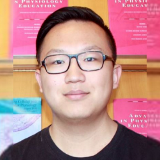
Richard Wu is a PhD student in the laboratory of Dr. Scott R. Manalis at MIT. With a background in microfluidics and analytical technique development, Richard has worked on a series of new measurement technologies for both fundamental and translational research. His previous work on single-cell biophysical profiling has been adopted as a potential clinical guidance assay for personalized cancer medicine. He is currently focused on building process analytical technologies for cell and gene therapy manufacturing. Prior to graduate school, he obtained a B.S. in bioengineering at UC San Diego.
Jiansheng Wu, PhD, Head of Protein Sciences, VP, Protein Sciences, WuXi Biologics
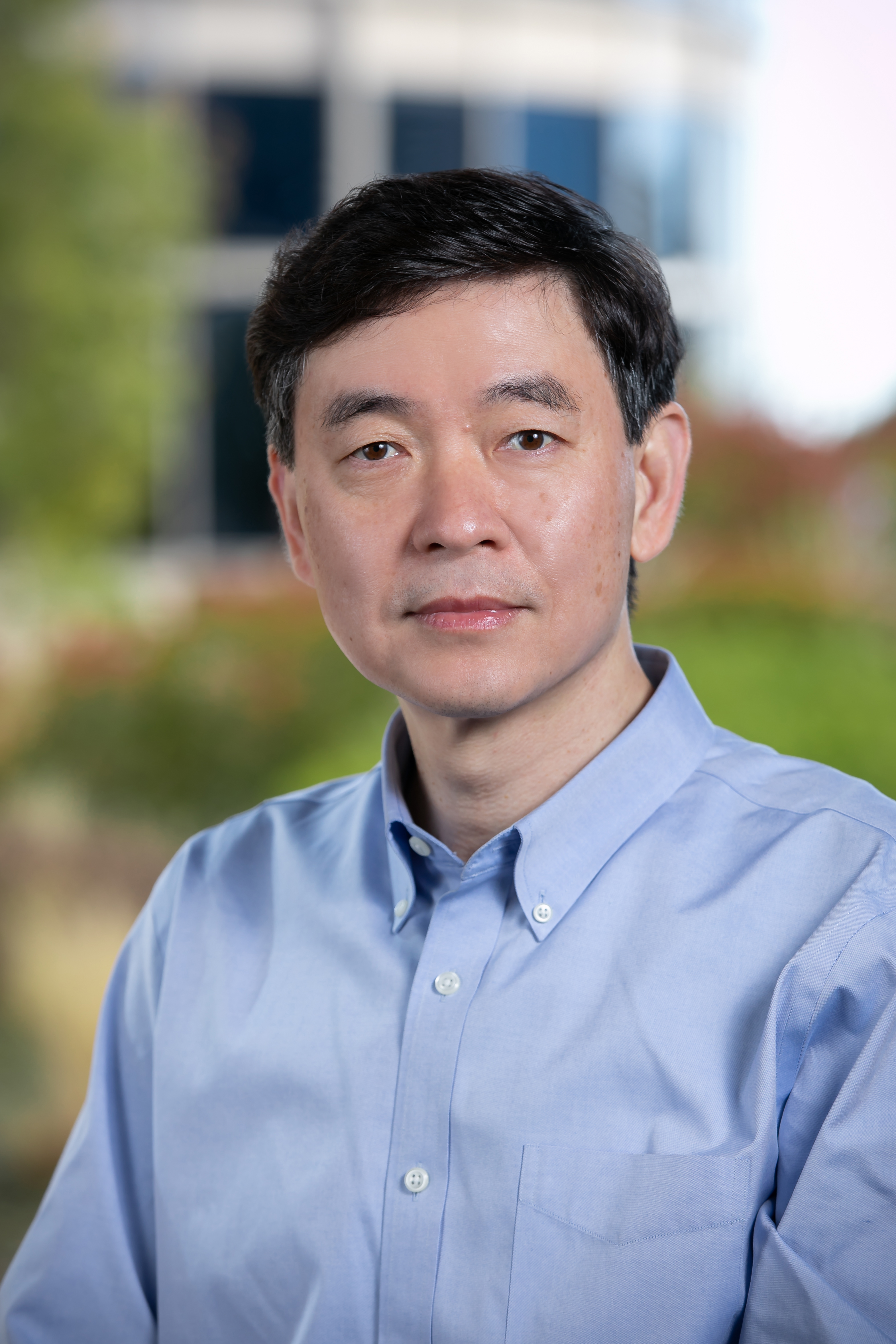
Dr. Wu is the Head of Protein Sciences and Vice President at WuXi Biologics. With vast experience in protein sciences, he has been instrumental in establishing global protein production facilities and developing cutting-edge technologies. Participated in over 50 drug development projects, Dr. Wu is a leader in automated expression, purification, and characterization of proteins. Previously at Genentech for 15 years, he made significant contributions to innovative protein expression and purification technologies.
Yifeng Xu, PhD, Principal Scientist, Cell Line Development Bioprocess R&D, Pfizer Inc.

My name is Yifeng Xu and I’m a principal scientist in Pfizer Cell Line Development within Biotherapeutics Pharmaceutical Sciences Department. I’m a molecular biologist and have been working with CHO host cell expression system development and optimization. With increasing understanding of CHO biology and modern advanced tools, we are looking for developing the best cell lines for drug molecules with different modalities. I graduated from Stony Brook University in 2016 with a PhD in genetics and genomics and joined Pfizer after my graduation.
Sean Yamada-Hunter, PhD, Postdoctoral Research, Mackall Lab, Stanford Cancer Institute, Stanford University
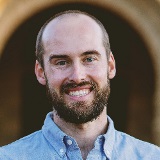
Sean is a postdoctoral researcher in Crystal Mackall's lab at Stanford University applying protein engineering and synthetic biology techniques to CAR T therapy to design improved therapeutic modalities for treating pediatric cancers. Sean received his PhD from Stanford in Cancer Biology in the lab of Jennifer Cochran.
Xue (Snow) Yang, PhD, Senior Scientist, AbbVie, Inc.

Xue Yang is a senior scientist in the Cell and Protein Science group of AbbVie Bioresearch Center. She obtained her Ph.D. from Rutgers University, Department of Chemistry & Chemical Biology under the guidance of Dr. Jean Baum to investigate the mechanism of amyloid formation in a-synuclein and interactions that inhibit amyloid aggregates formation. Her current research interests are in-depth characterization of oligomers and fibrils (including amyloid beta, Tau, a-synuclein and TDP-43) and understanding the correlation between fibril biophysical properties and biological behaviors (seeding and propagation).
Zhaojun Yin, Principal Scientist, BioAnalytical Sciences gRED Development Sciences, Genentech

Zhaojun Yin is a principal scientist at Genentech where he supports the in vitro biological characterization of large molecules and leads the development of immunogenicity assays including NAb and immunogenicity risk ranking assays.
QC Yong, Antibody CMC, Associate Director, Capstan Therapeutics

With more than 10 years’ experience in drug discovery, cell line development, product/process development, GMP manufacturing for biologics (recombinant proteins/antibodies), and diagnostic products for companies including Baylor Scott & White, BioLegend, and Ligand Pharmaceuticals, Yong joined Capstan Therapeutics as associate director who is responsible for antibody CMC. In addition to the antibody development and manufacturing, he is also in charge of the evaluation and development of site-specific conjugation technologies compatible with lipid nanoparticle.
Kevin Zen, PhD, Senior Director, IGM Biosciences
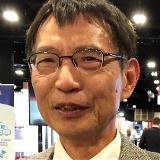
Kevin has over 20 years of broad experience in Biologics CMC, and Strategic and Technical Operations. Prior to joining IGM Biosciences, he held various positions in biologics CMC disciplines at Allergan, AnaptysBio, AstraZeneca, Becton Dickinson, and Catalent Biopharma Solutions. In addition to developing therapeutic biological products in-house, Kevin also had extensive experience working with external contract manufacturing organizations (CMO) and contract research organizations (CRO), including production cell line development, bioprocess development, DS/DP cGMP manufacturing, process characterization, process performance qualification (PPQ), formulation development by DoE, analytical procedure development and method validation, reference standard qualification, extended characterization, and CMC analytical comparability.
Veronica Zeng, PhD, Principal Scientist, Xencor, Inc.

Dr. Veronica Zeng is a Principal Scientist of Discovery Biology & Pharmacology working as scientific lead and project leader within several preclinical projects at Xencor, Inc. Xencor is a clinical-stage biopharmaceutical company developing Fc-engineered and bispecific antibodies for the treatment of cancer, autoimmune disorders, and infectious disease. Currently, 2 approved programs and 17 candidates engineered with Xencor's XmAb technology are in clinical development internally and with partners including Novartis, Morphosys, Janssen, Aimmune Therapeutics, Bristol Myers Squibb, Amgen, Vir Biotechnology, and Alexion. She joined Xencor, Inc., in 2017, as an associate scientist establishing bioassays within preclinical development of immune-modulatory bispecific antibodies. Dr. Zeng received her PhD from the University of California, Riverside, and completed a postdoc at the City of Hope, Arthur Riggs Diabetes & Metabolism Research Institute.
Chen Zhou, PhD, Principal Research Scientist, Biologics Drug Product Development, Abbvie Bioresearch Center
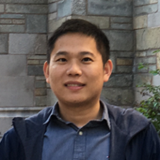
Chen Zhou is a Principal Research Scientist at Abbvie Bioresearch Center. Chen has a PhD degree in Pharmaceutical Sciences from University of Colorado and has over 10 years of experience in Drug Product Development for biologics including peptide, mAb, fusion protein, ADC, bispecific Abs, and rAAV gene therapy.
Inna Zilberleyb, Scientist IV, Biomolecular Resources, Genentech, Inc.

Inna is a Scientist IV in the Biomolecular Resources Department at Genentech. Since joining Genentech in 2006, Inna helped establish a high-throughput recombinant protein expression platform to support research biology, structural studies, and lead identification for Early Stage Drug Discovery in various therapeutic areas. Inna leads technology innovation and automation efforts and has contributed to the development of a multi-host high-throughput purification screening platform, creation of a vector collection to enable high-throughput cloning, and advancing isotopic labeling technologies. With an extensive experience in developing bioinformatics tools, Inna is a Subject Matter Expert for Protein Sciences Informatics initiatives at Genentech. Prior to joining Genentech, Inna was an Associate Scientist in Protein Engineering at Exelixis, where she supported small molecule drug discovery in oncology space. Inna holds a B.S. degree in Molecular and Cell Biology from University of California Davis.
Eric Furfine to be Announced, PhD, Chief Executive and Scientific Officer, Mosaic Biosciences
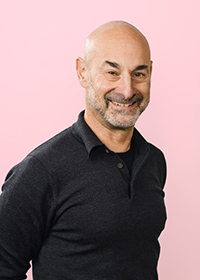
Eric, Mosaic's CEO & CSO, leverages extensive biotech and pharma leadership. As Eleven Biotherapeutics' CSO, he led a successful IPO, financing Phase 3 studies, and secured a significant licensing deal. Notably, he built the Adnectin platform at Adnexus, resulting in its acquisition by BMS. As VP of Preclinical Development at Regeneron, he significantly contributed to the development of groundbreaking drugs, including Eylea. Eric holds a PhD in Biochemistry from Brandeis University.
講演者・スポンサー更新
講演者・スポンサー更新
Premier Sponsor
プログラム
 抗体探索・エンジニアリング
抗体探索・エンジニアリング 二重特異性抗体の探索
二重特異性抗体の探索 生物学的製剤・ワクチンの特性評価
生物学的製剤・ワクチンの特性評価 ベクターの設計と送達
ベクターの設計と送達 生物学的製剤の発現と生産
生物学的製剤の発現と生産 トレーニングセミナー
トレーニングセミナー